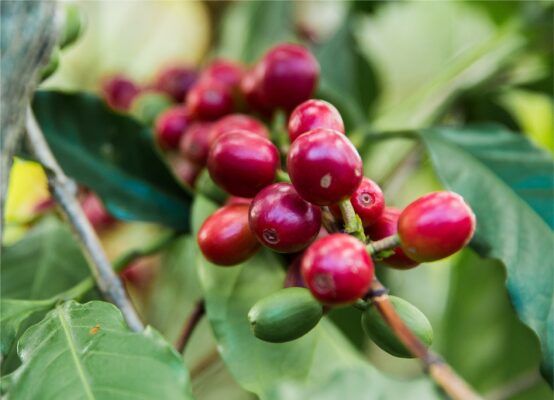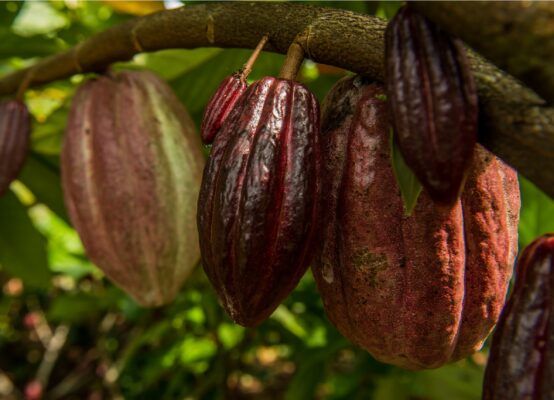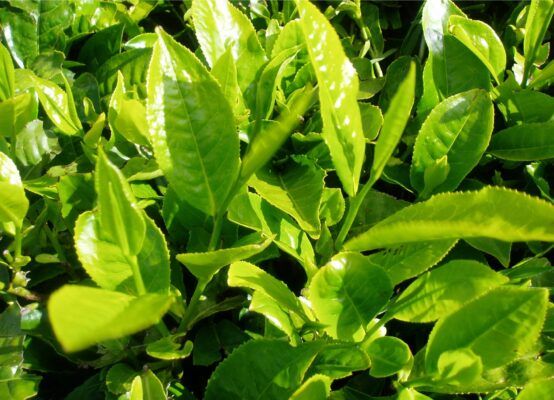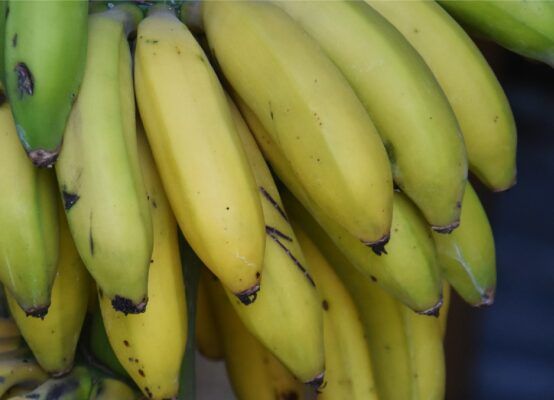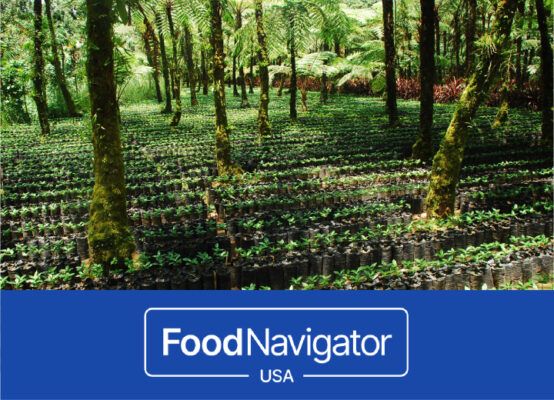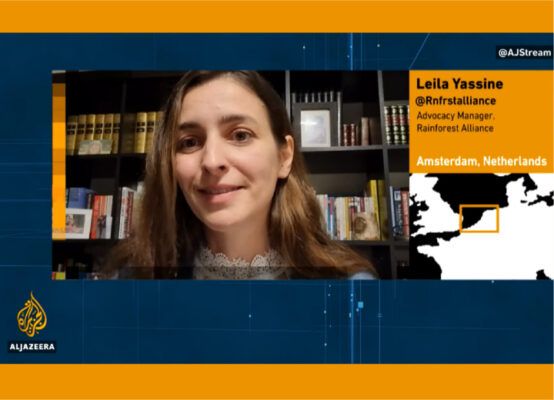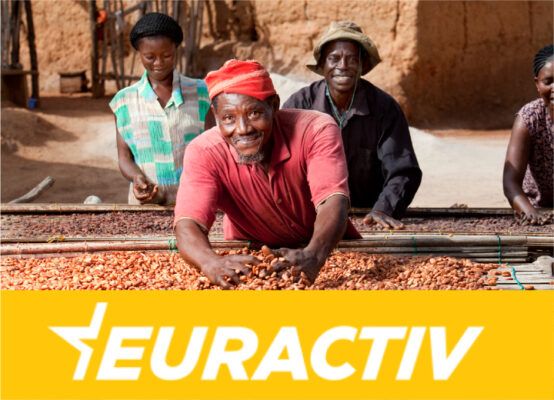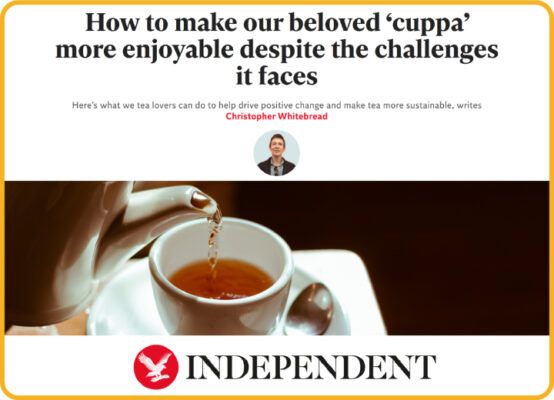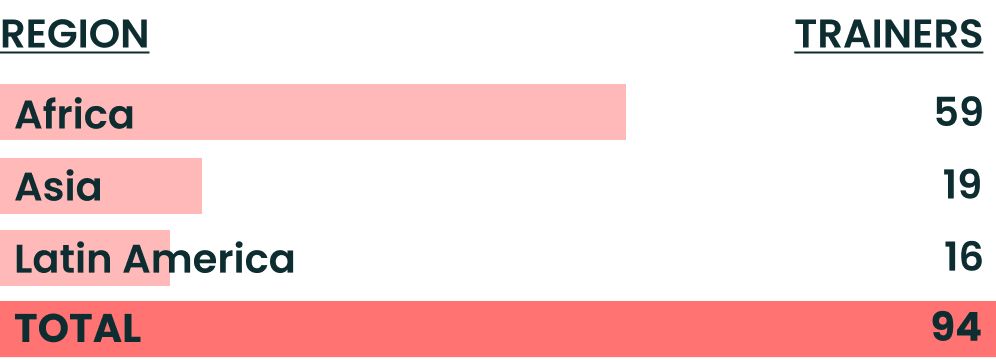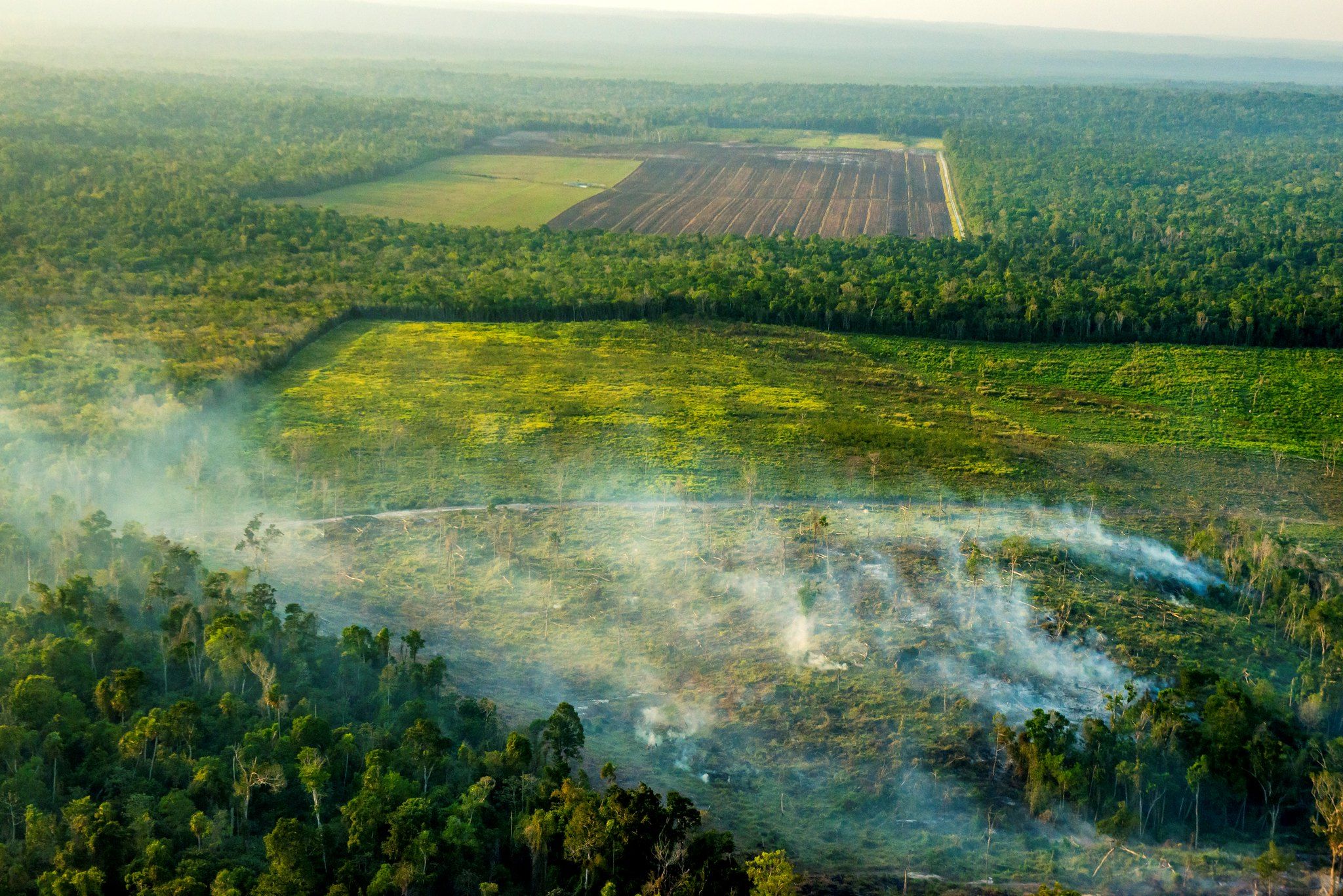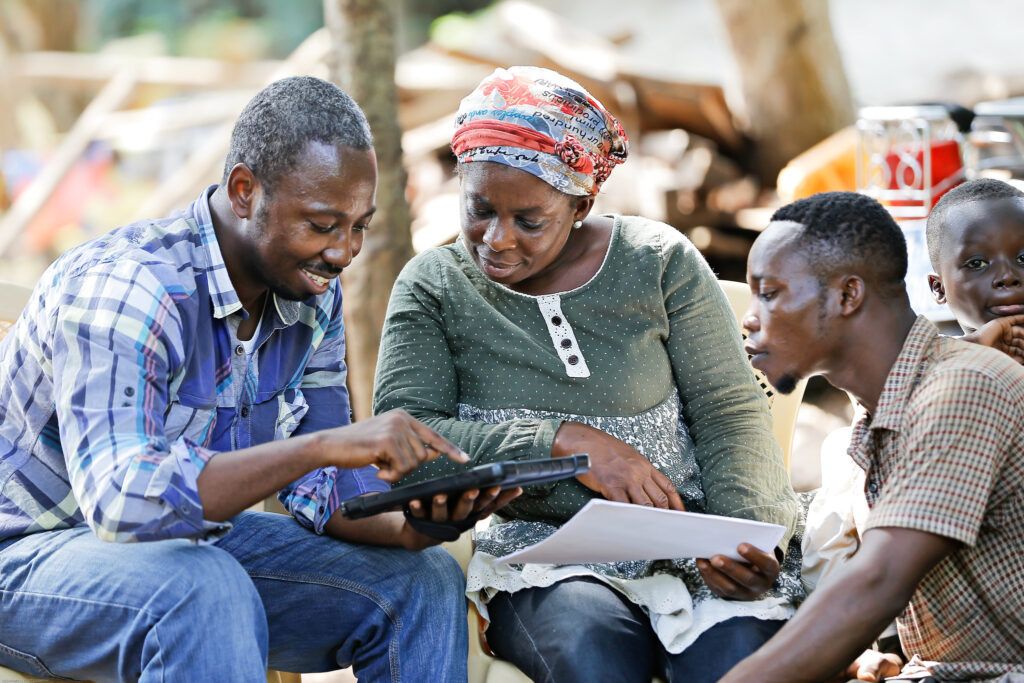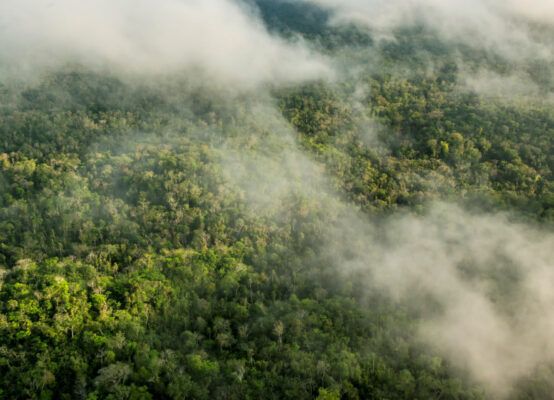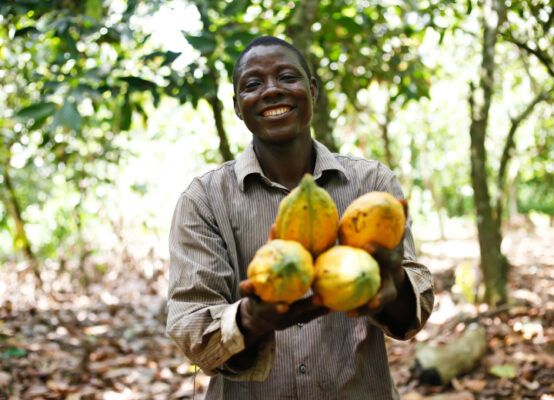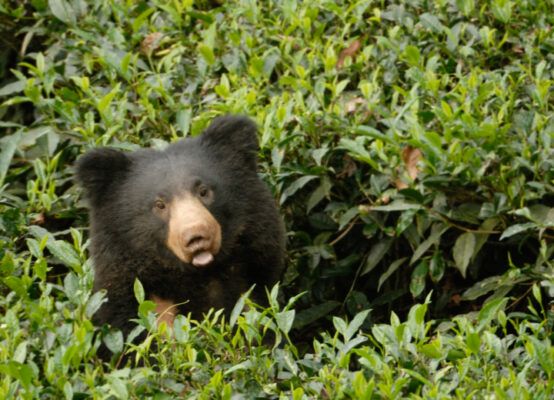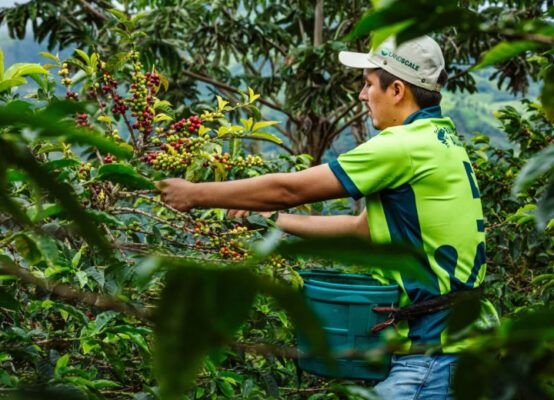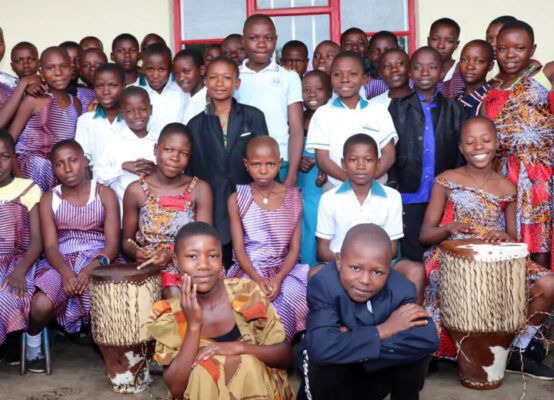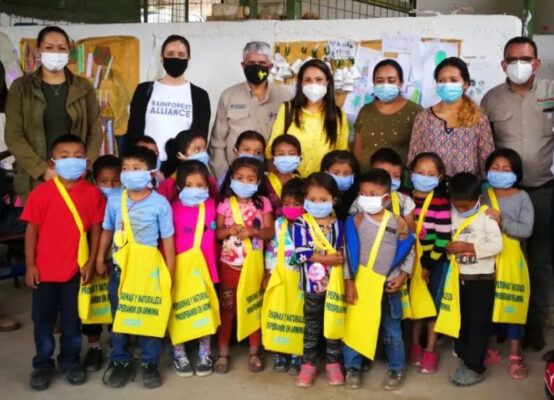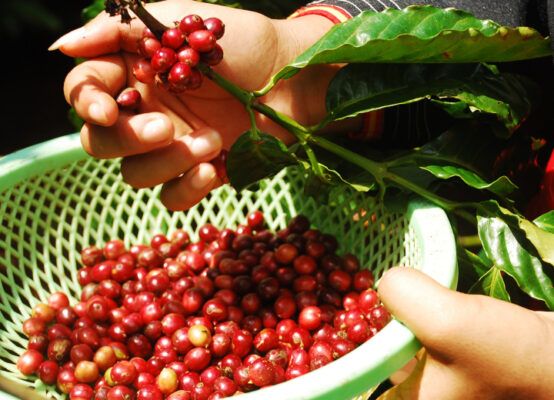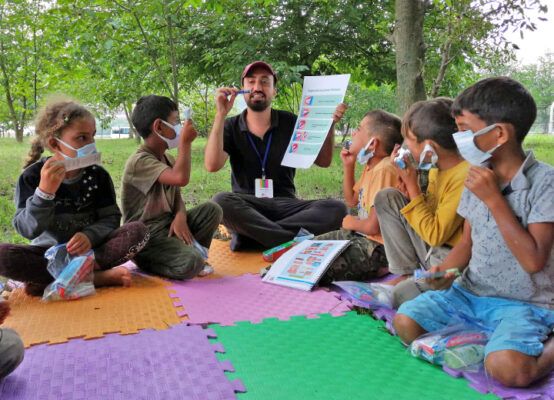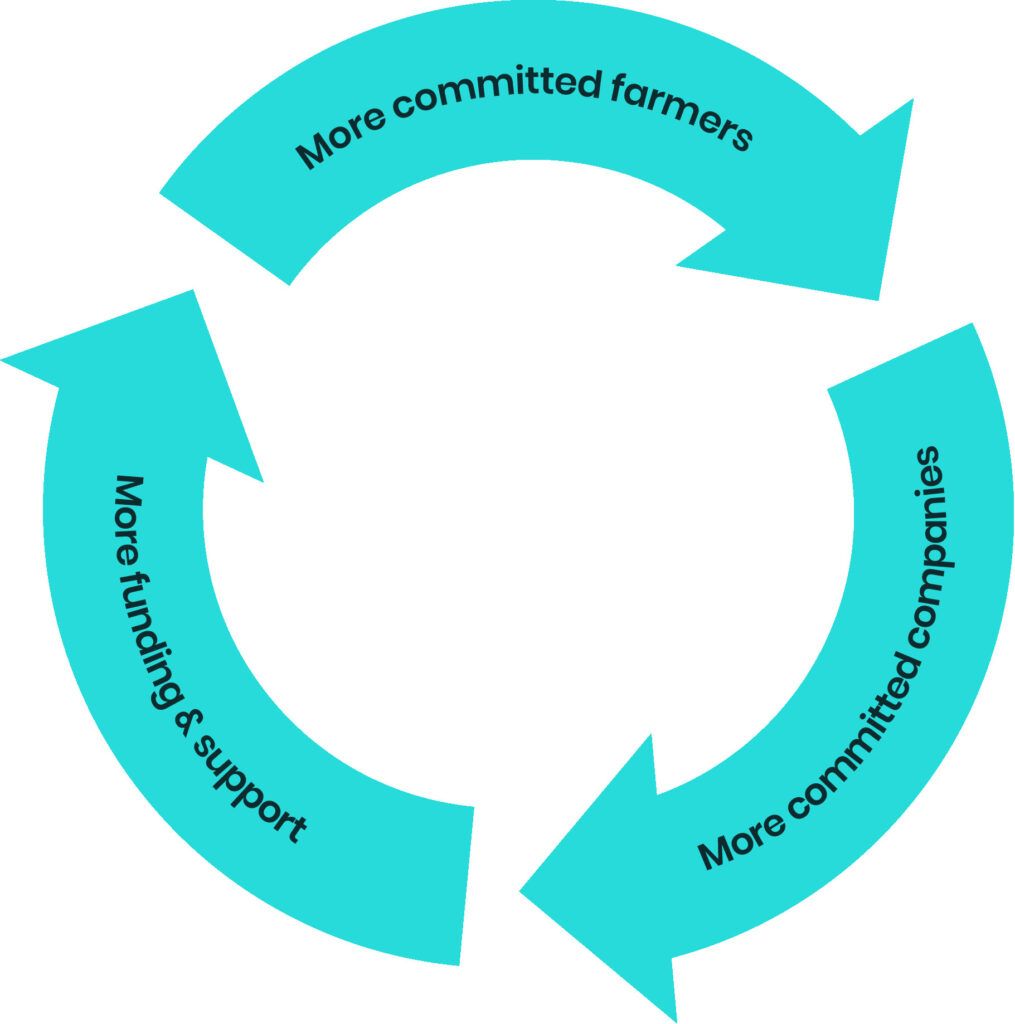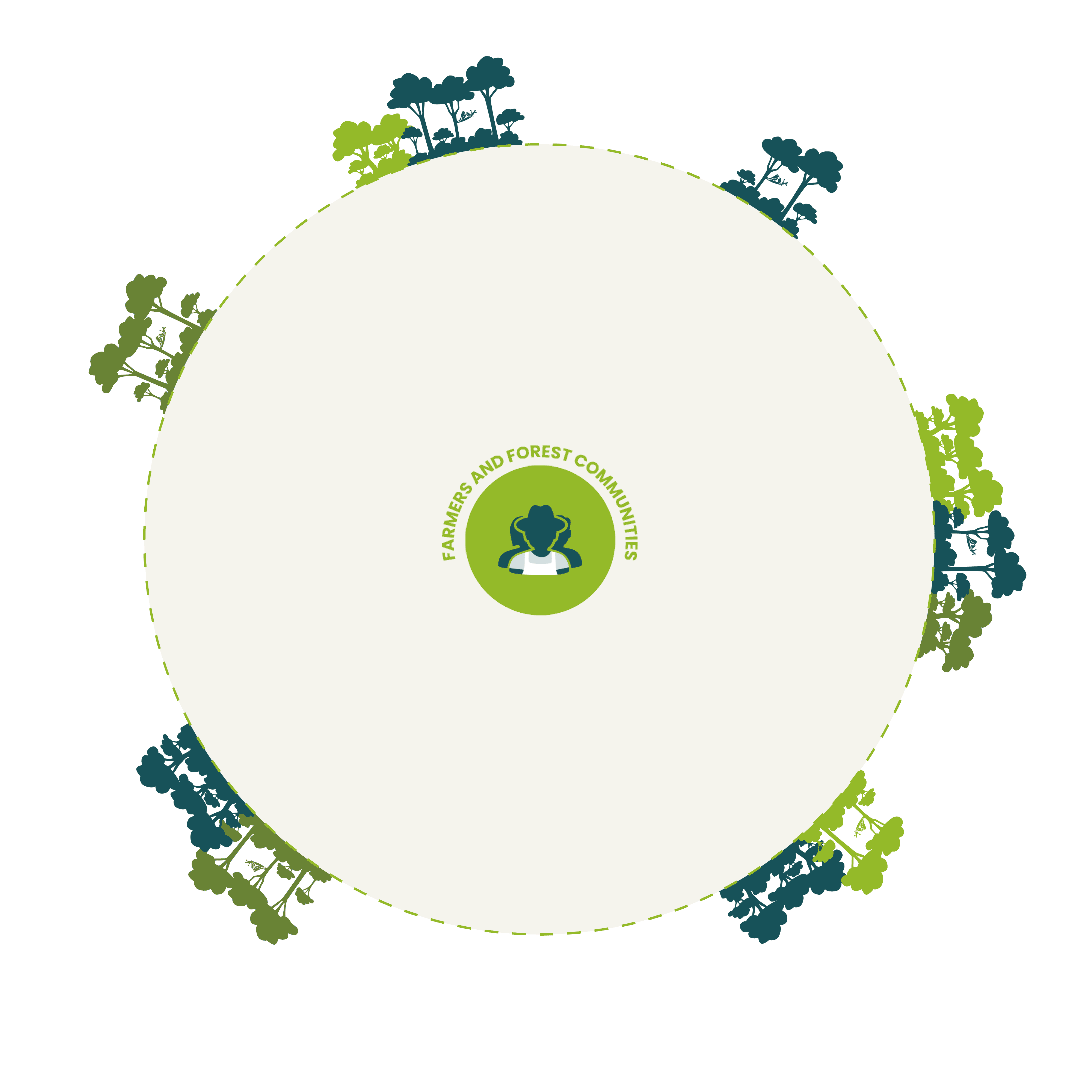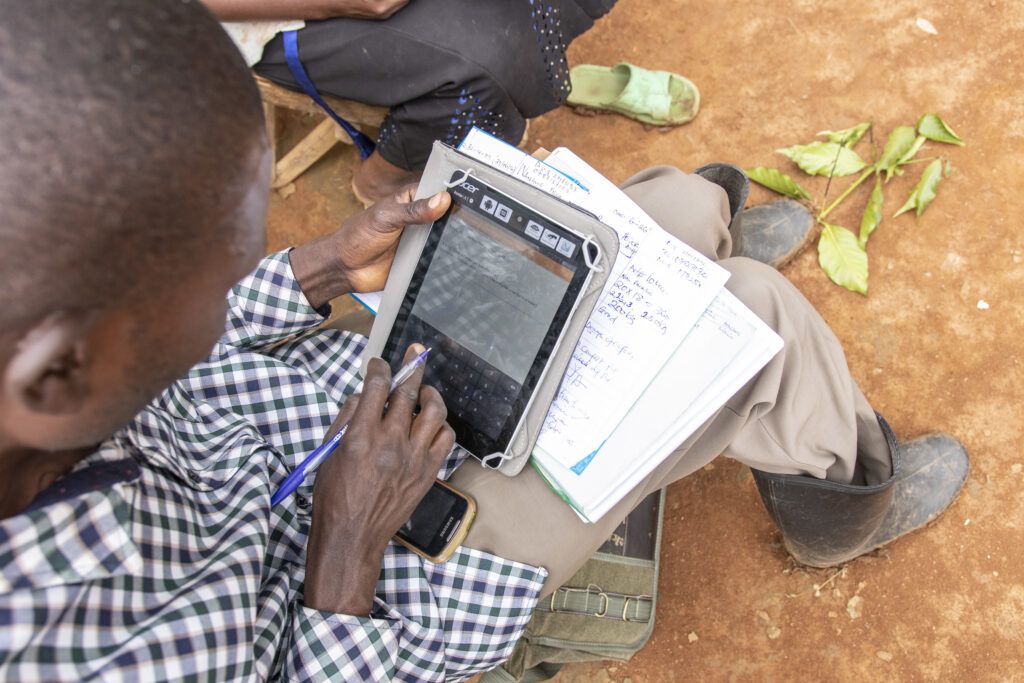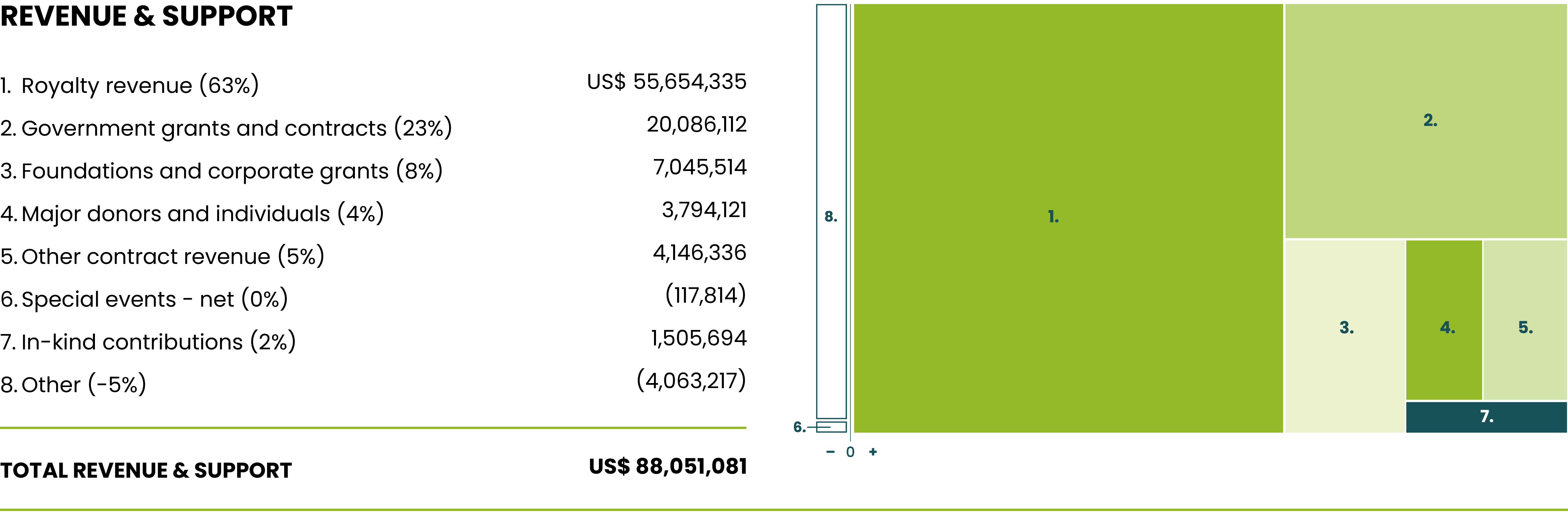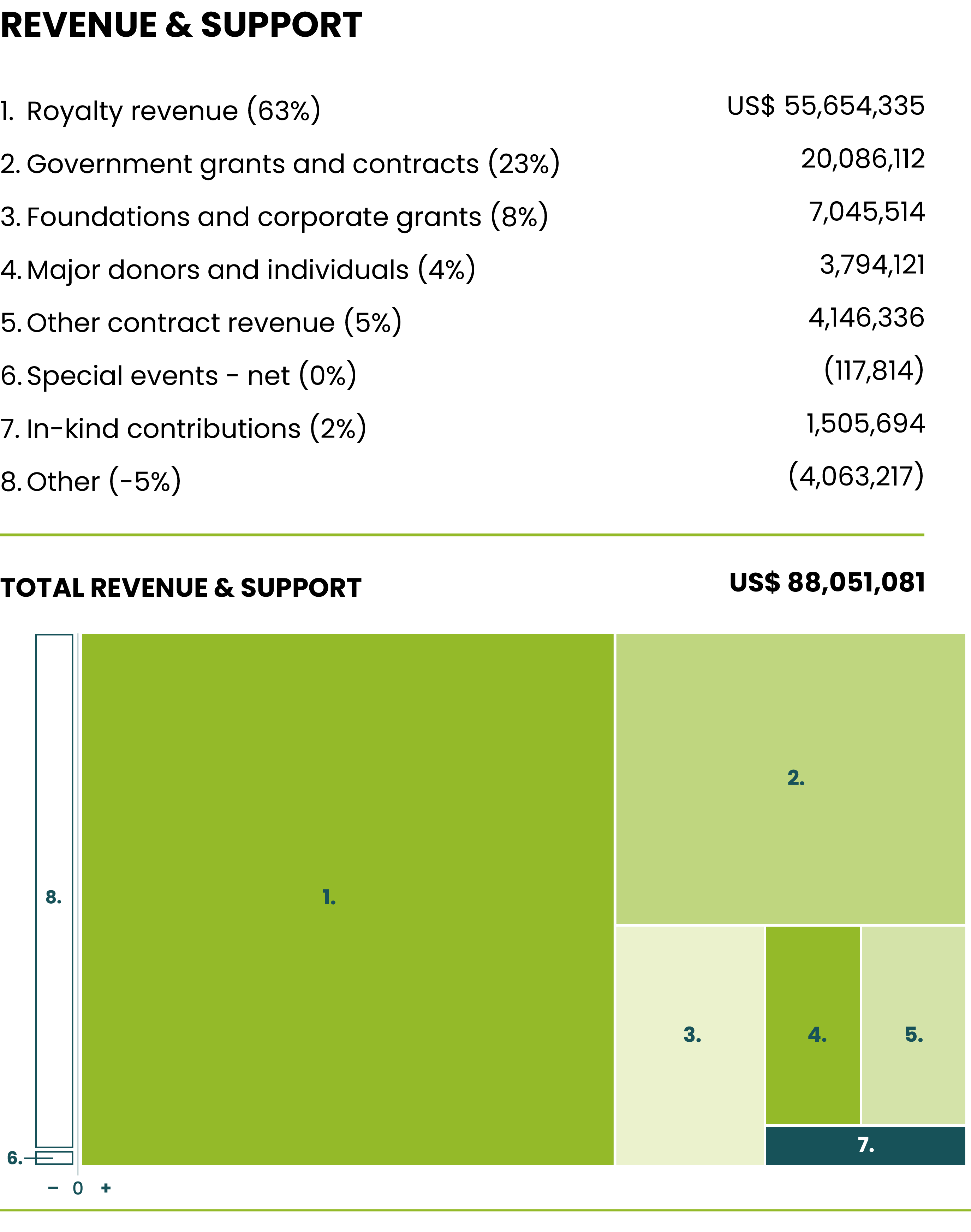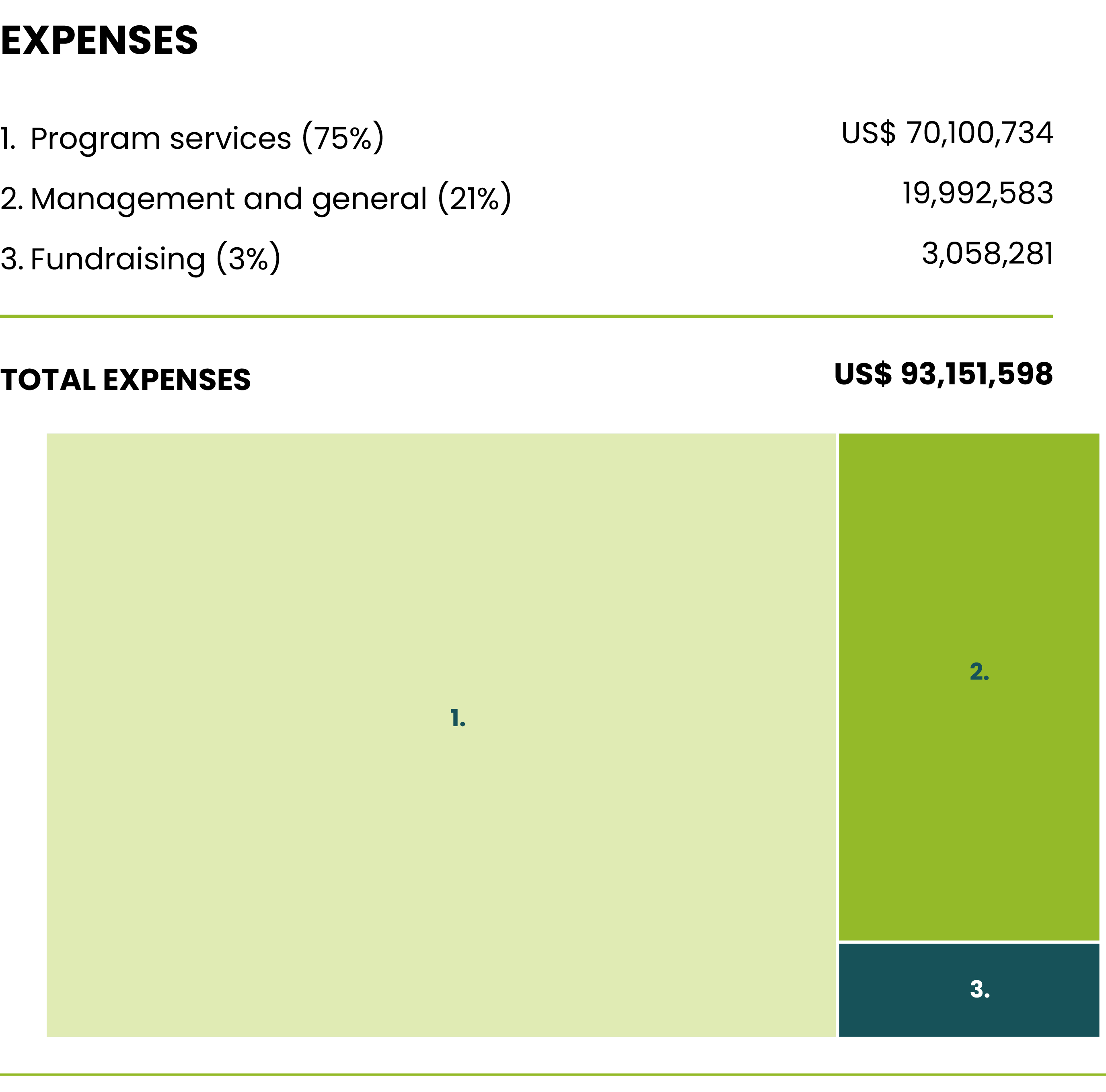2022 Annual Report
We’re
all in.
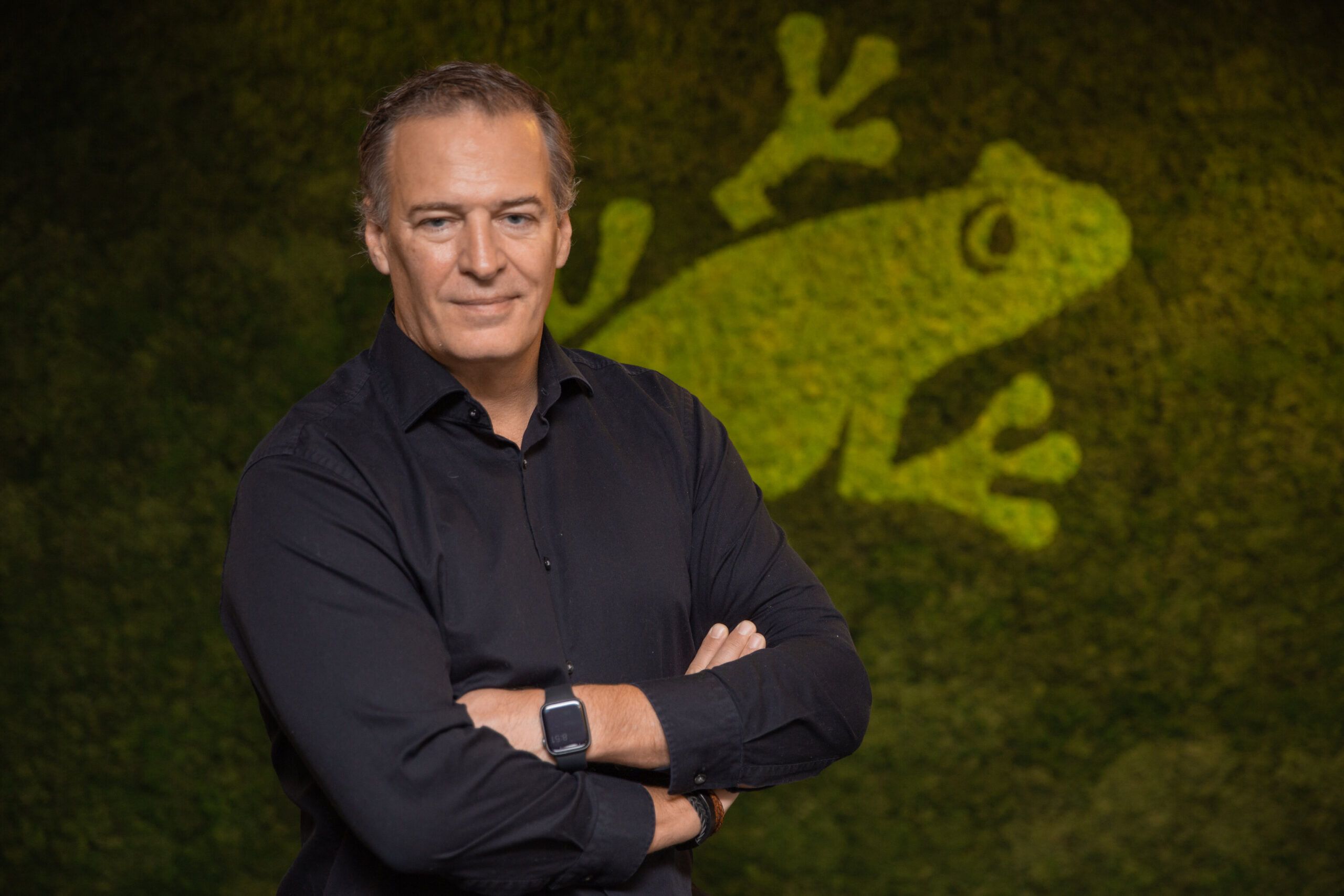
VIDEO: A Message from Our CEO
“We are focusing on accelerating the transformation of key landscapes at a speed and scale we’ve never seen before. Food, agriculture, forestry—it’s a critical agenda that affects us all.”
Santiago Gowland
Rainforest Alliance CEO
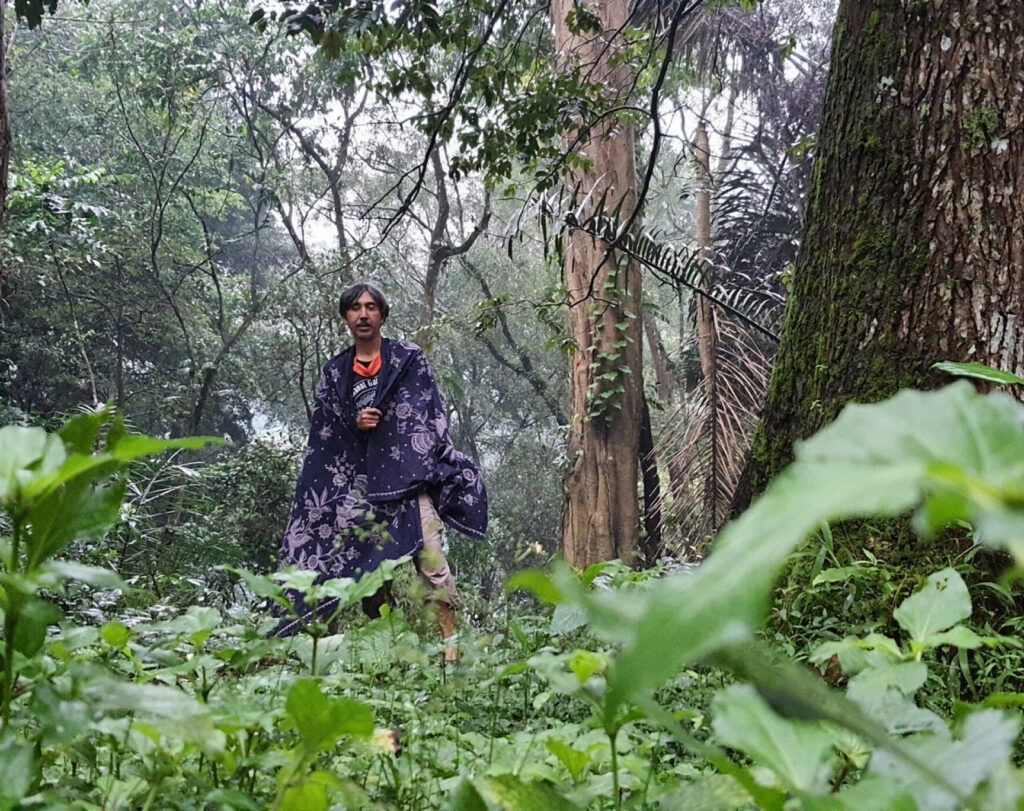
1.
Our Global Reach
We partner with diverse allies around the world to drive positive change across critically important landscapes and global supply chains.
The Rainforest Alliance spans nearly 60 countries and includes farming and forest communities, companies, governments, civil society, and millions of individuals. Together, we work to protect forests and biodiversity, act on climate, and promote the rights and improve the livelihoods of rural people. Our holistic approach weaves together four closely connected interventions: certification, landscape and community programs, advocacy, and supply chain services.
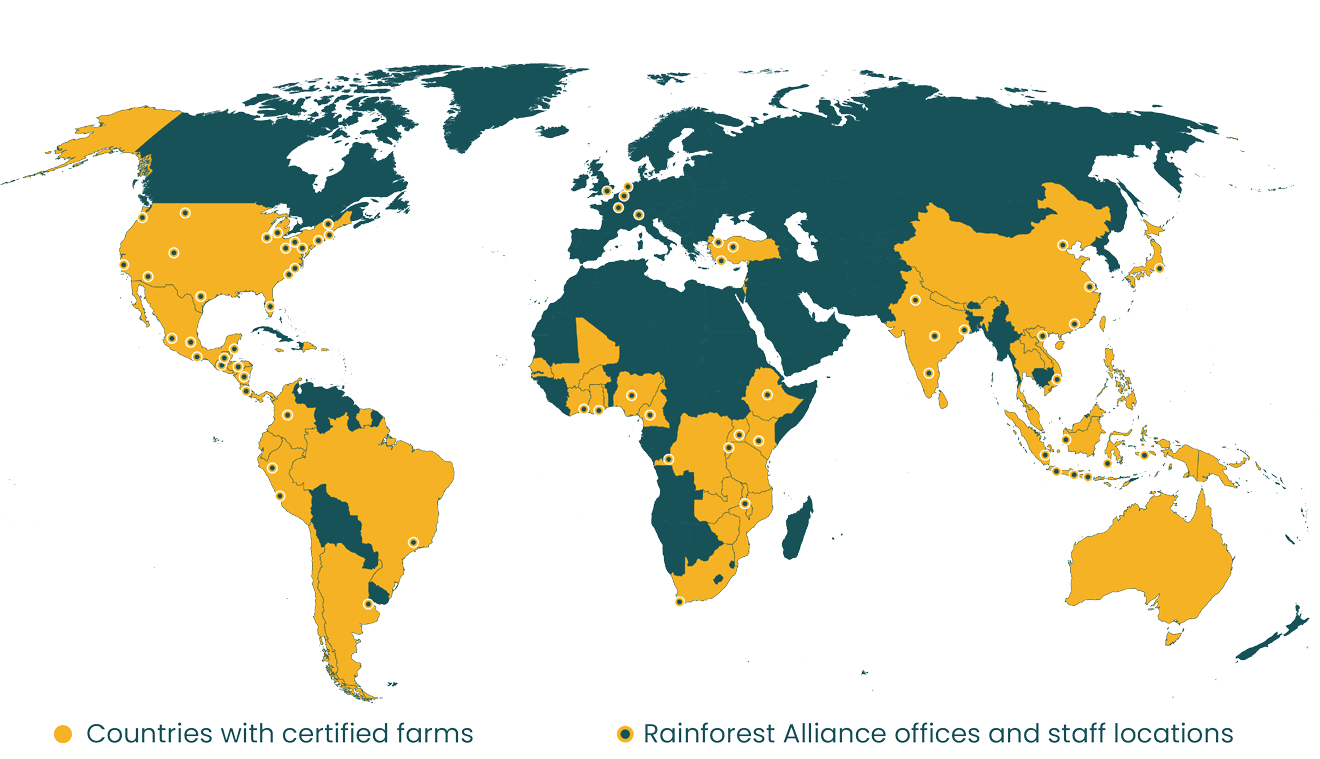
-
6 million+
hectares of certified farmland
-
58
countries with certified farms and projects
-
4 million
farmers and workers on certified farms
-
87
projects to improve livelihoods and protect nature
-
18
new projects started in 2022
-
54,000+
products with the Rainforest Alliance Certified seal or UTZ label
-
190
countries where Rainforest Alliance Certified products are sold
Note: Due to the self-reported nature of some of our data sets, paired with recent changes to our collection and analysis systems, we are still processing the final 2022 figures for the number of farmers and workers on certified farms and the number of hectares of certified farmland (as of the time of publication). The numbers reported here for those two indicators are from 2021, with updates forthcoming.
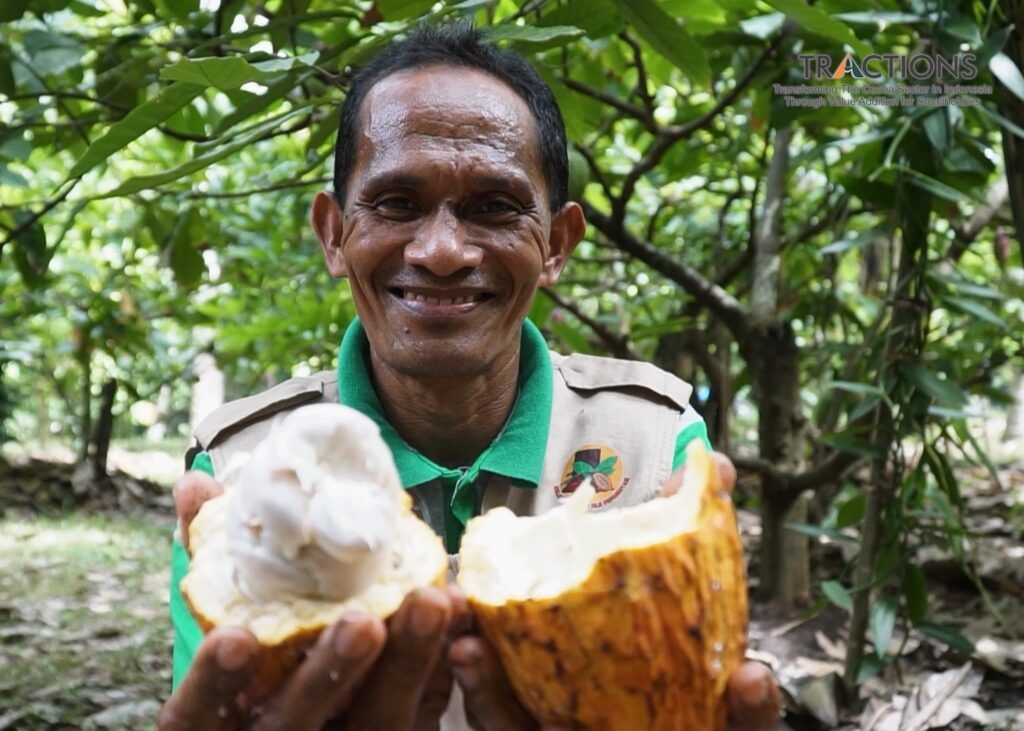
“After [the Rainforest Alliance training], my yields improved and I’m making a better income for my family.”
Sapar
Indonesian cocoa farmer
Certification
For the past two years, we have been refining our approach to best support farmers and companies transitioning to the 2020 Rainforest Alliance Certification Program.
Here are some highlights from our largest certification sectors in 2022:
Our Alliance
4 million
farmers and workers
on certified farms*
6,000+
company partners
8,000
individual donors
46
institutional donors
58
coalitions and platforms
that we take part in
56
NGOs and CSOs that
advocate with us
* Note: Due to the self-reported nature of some of our data sets, paired with recent changes to our collection and analysis systems, we are still processing the final 2022 figures for the number of farmers and workers on certified farms (as of the time of publication). The number reported here is from 2021, with updates forthcoming.
Brand Reach
Our work depends on a broad and diverse alliance to address the world’s most pressing issues—an alliance made stronger when we connect with supporters around the globe. This year, through social media and email campaigns like Follow the Frog and Let’s Grow Together, collaborations with brand partners and influencers—like Nespresso with their Empty Cup campaign, featuring George Clooney—and interactive content, we were able to reach more people and significantly grow our brand.
“I believe every one of us has a responsibility to our planet and to other people, and that we should all help as our means allow.”
Zaina Gohou
German-Ivorian model, businesswoman, and environmental activist
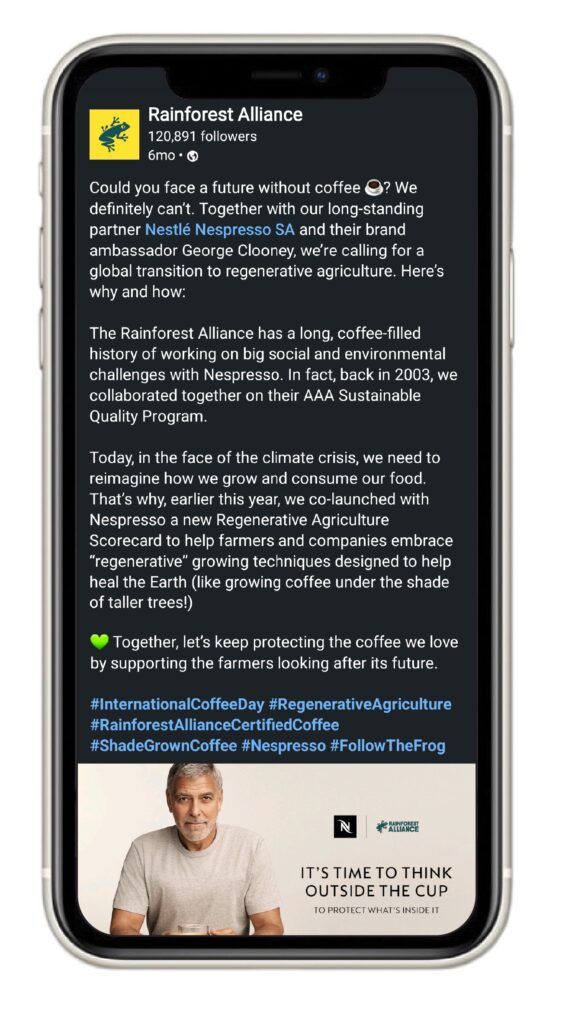
-
1.78 million
social media followers (4.8% growth)
-
3.3 million
website visits
-
443,000+
newsletter subscribers
-
45
influencer partners in 7 countries
-
28,700
media mentions of the Rainforest Alliance and our programs
-
96.6%
of media mentions were positive or neutral
In the News
Staff Statistics
A more diverse, equitable, and inclusive alliance
We envision a world where people and nature thrive together, which can only happen if we foster a more just and equitable global community. In the past year we’ve been building the foundation needed for meaningful progress on diversity, equity, and inclusion (DEI) at the Rainforest Alliance. Just as sustainability is a journey, DEI work is never finished: improving the lived experiences of the people in our alliance is a long-term project.
Some actions we’ve taken to create positive change in the last year include:
- Developing and implementing a DEI Committee structure and workplan, with active participation from team members of different geographies, identities, cultures, and backgrounds
- Conducting conversation circles with staff in different languages and organizing DEI courses for specific teams on cultural awareness and inclusive leadership, with a focus on local contexts
- Providing staff training on unconscious bias to encourage understanding and respect in our way of working
Our goal is for everyone in our alliance to have a sense of belonging and to feel safe, seen, and valued. While we still have much work to do, we are dedicated to making the Rainforest Alliance a place where we all thrive.
“Our growing staff in Africa, Asia-Pacific, and Latin America is a reflection of building our workforce in countries where we have more impact, creating a more inclusive way of working in which everyone can thrive.”
Ana Hernandez Azmitia
Lead Diversity, Equity, and Inclusion at the Rainforest Alliance
Global Distribution:
-
701
employees
-
34
countries with Rainforest Alliance staff
-
107
employees in the USA (+8%)
-
200
employees in Latin America (+16%)
-
202
employees in Europe (-2%)
-
124
employees in Africa (+49%)
-
68
employees in Asia-Pacific (+51%)
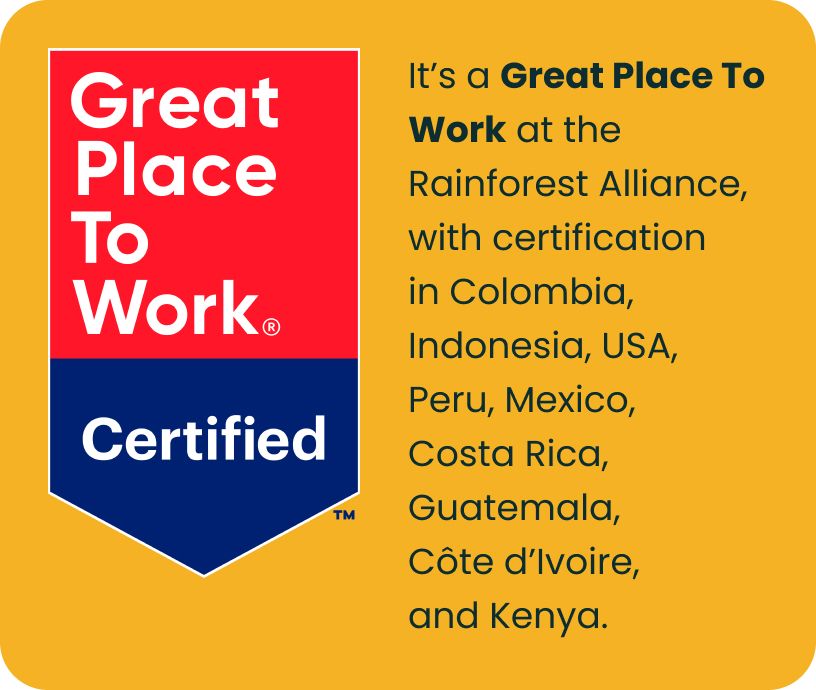
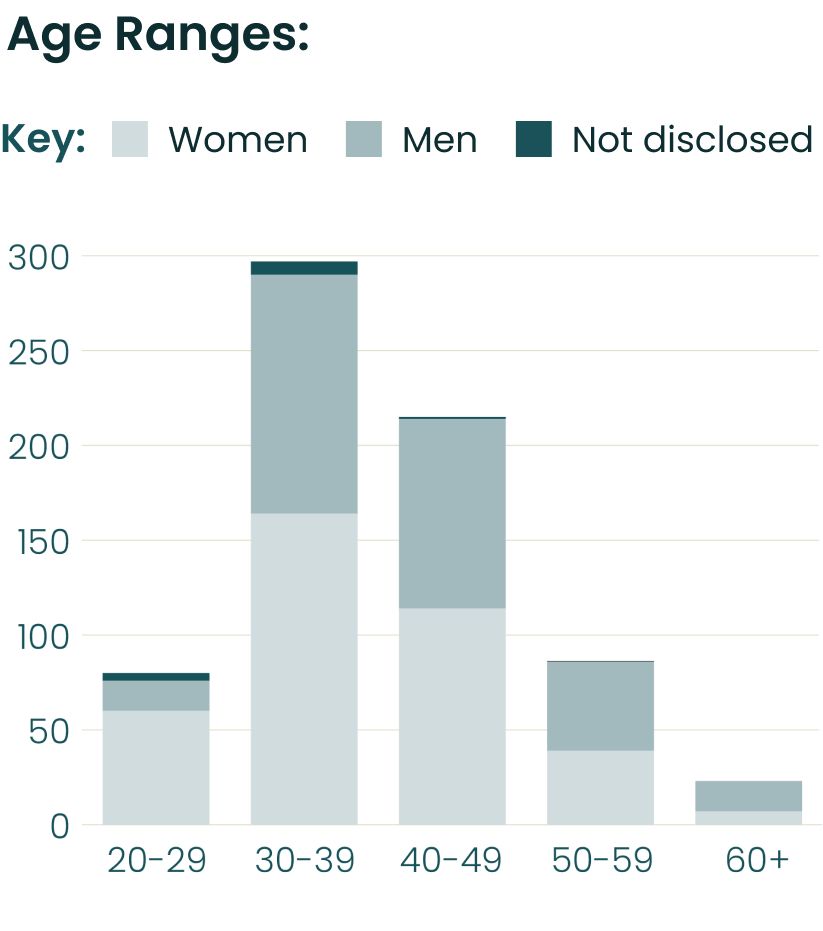
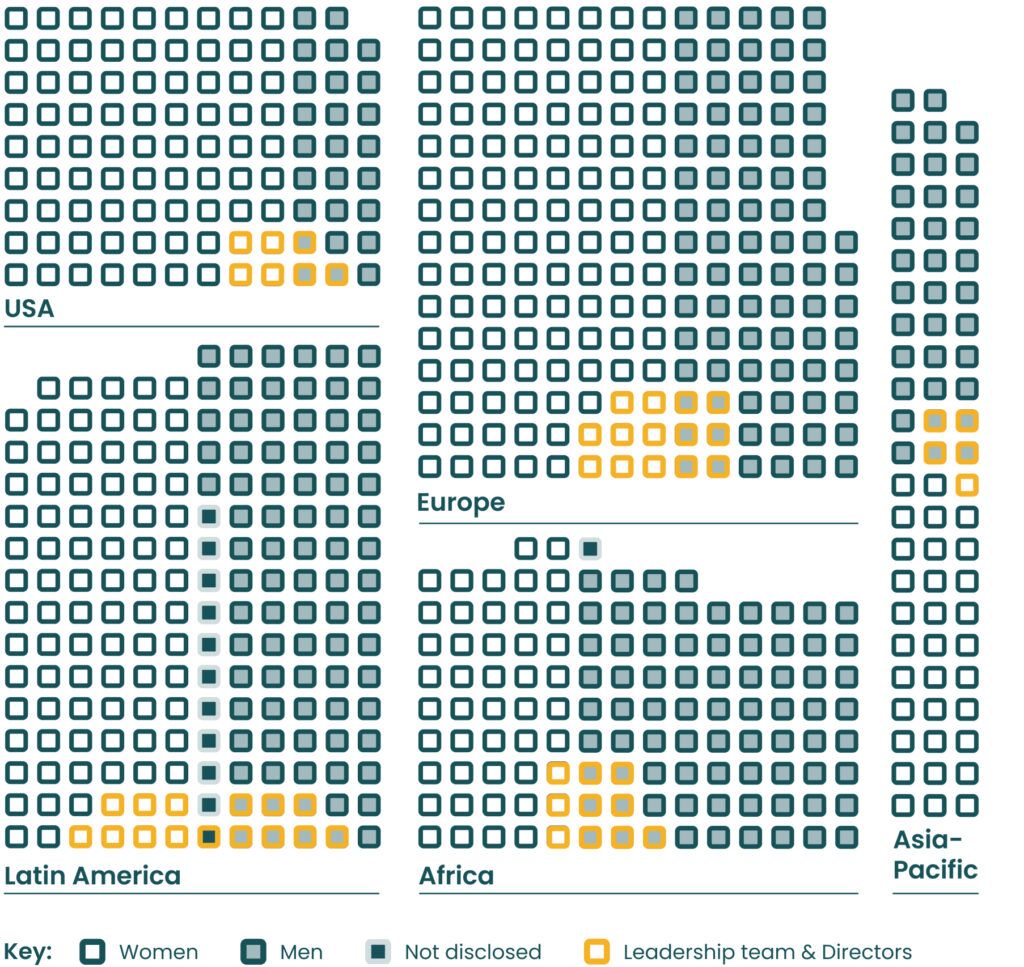
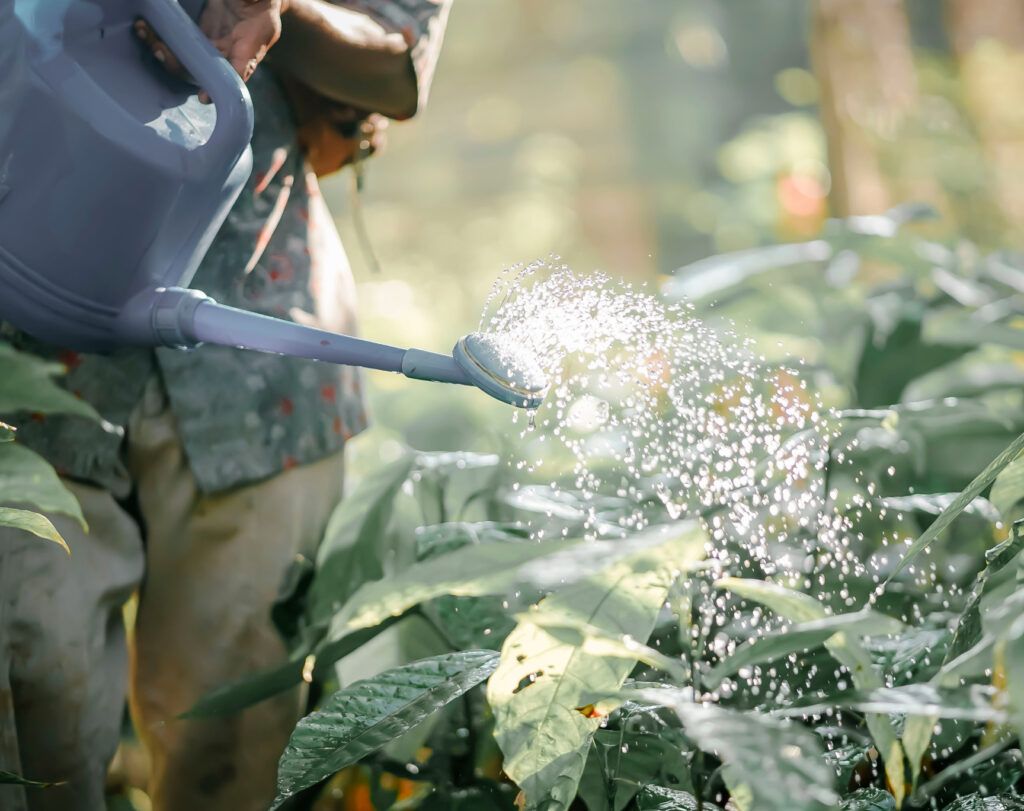
2.
Certification & Beyond
Building on our decades of experience in certification, we’re scaling our ambitions through cross-sector partnerships and farmer-focused innovation.
A First for Regenerative Agriculture: Our Coffee Scorecard
For the Rainforest Alliance, sustainability is a journey, and regeneration is the destination. Regenerative agriculture seeks to create farms that actually add to nature’s richness, rather than take away.
In the coffee sector, a clear pathway to regenerative agriculture has been lacking—until now. In 2022, we launched the Regenerative Coffee Scorecard, developed in partnership with Nespresso. The scorecard focuses on five key indicators—soil, biodiversity, livelihoods, water, and crop resilience—and allows agronomists to tailor practices to local growing conditions, which can differ widely from region to region. This new tool, available to both certified and non-certified supply-chain actors, assesses current farm performance, highlighting improvement areas needing targeted support, and tracking progress toward regenerative goals.
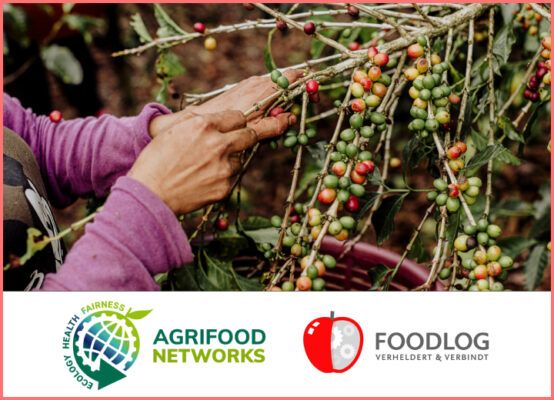
In the Media
“Regenerative agriculture is a win for farmers, food companies, and the environment,” says our Regenerative Agriculture Lead Juliana Jaramillo.
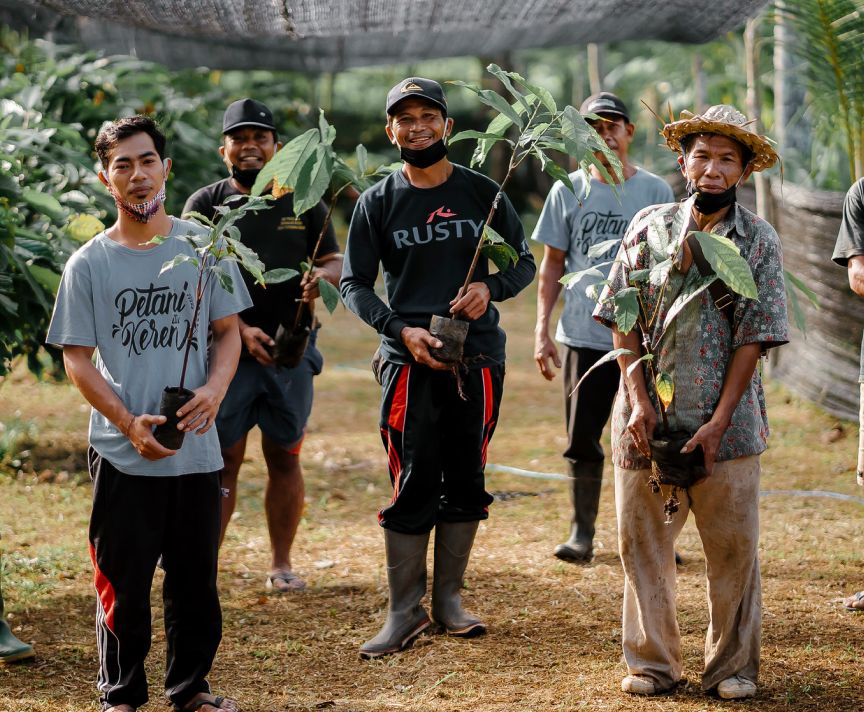
VIDEO: Helping Cocoa Farmers Build Resilience to Climate Change in East Nusa Tenggara, Indonesia
Transforming the Cocoa Sector in Indonesia
When nine days of heavy rains devastated a community in Ende, East Nusa Tenggara, local cocoa farmers joined forces with the Rainforest Alliance to rebuild their livelihoods—and prepare for future climate shocks. Together with our partner NGO Rikolto, we ran trainings in climate-smart farming techniques focused on flood prevention and crop health—from seasonal pruning and mulching to digging “rorak” pits to collect rainwater runoff.
This work is part of our wider initiative to improve the livelihoods of cocoa farmers in seven regions across Indonesia. In 2022, we trained 1,690 smallholders in key skills, including climate resilience, gender equality awareness, farming as a business, and cocoa fermentation.
“In the past, I had to wait for trees to bear many fruits, but not anymore. Now, every two weeks, I go to the farm to check.”
Nuri
Cocoa farmer
Toward a Regenerative Approach to Tea in Mount Kenya
On the slopes of Mount Kenya, we’re teaming up with farmers, companies, and government agencies to protect an iconic East African landscape. Together, we’ve set up a community-led Landscape Management Board tasked with forest restoration and strengthening rural livelihoods.
In 2022, much of our work focused on helping tea farmers tackle climate challenges—from rising temperatures and unpredictable rainfall to outbreaks of tea mites and weevils. Our efforts are rooted in the Rainforest Alliance’s regenerative agriculture approach—practices that heal the land, like organic composting, planting cover crops, and minimum tillage. Enos Gichanga Muriuki, a Rainforest Alliance Certified tea farmer in Kirinyaga, notes that his income has improved following the trainings. He is especially proud that “nothing goes to waste on our farm,” since he now turns livestock manure into household biogas and organic fertilizer.
“I am now perceived as a role model and my farm is seen as a center of excellence where many farmers within the region come to learn.”
Enos Gichanga Muriuki
Tea farmer
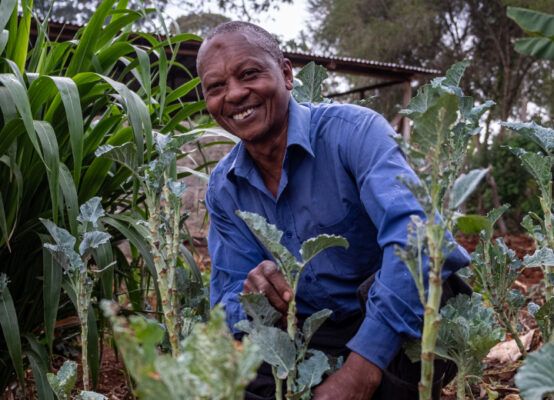
Kenya
Mount Kenya is one of East Africa's most iconic landscapes. Here, smallholder tea and coffee farmers must work together to tackle the climate crisis.
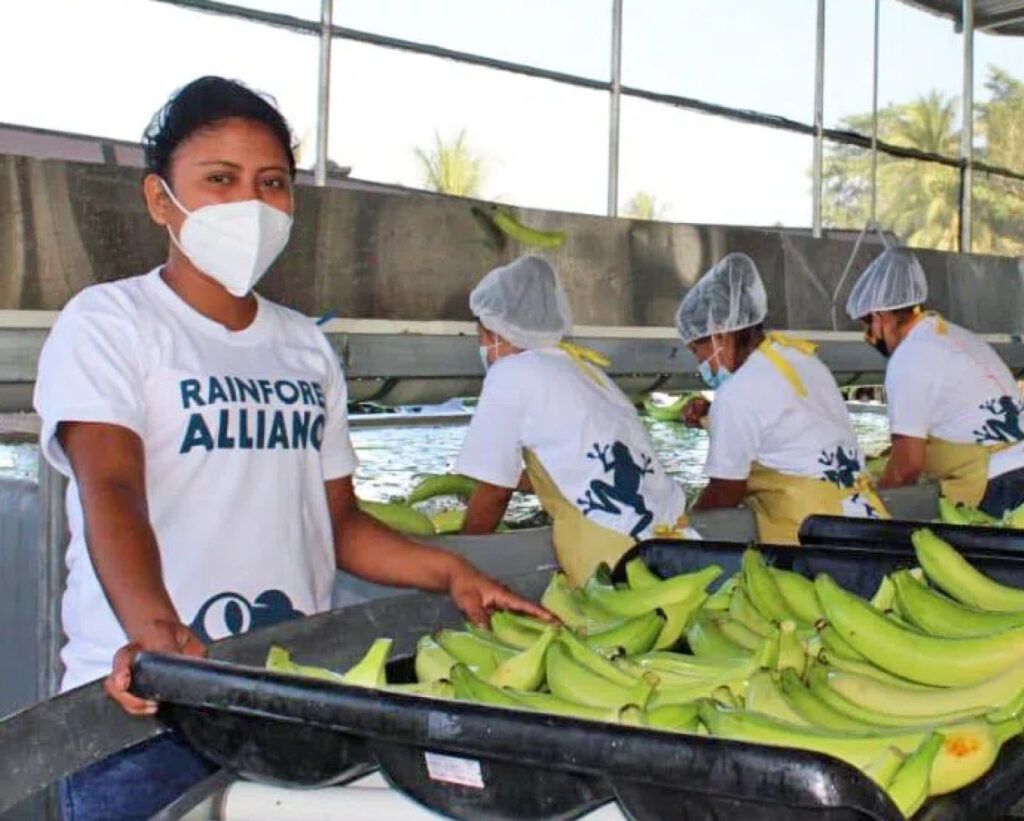
Protecting Migrant Fruit-Sector Workers in Mexico and Costa Rica
The production of tropical fruits like bananas, pineapples, and berries relies heavily on migrant workers, who are particularly vulnerable to fraudulent and exploitative hiring and work practices. The Rainforest Alliance Certification Program requires certificate holders to perform rigorous oversight of labor recruiters to ensure workers are not exploited, and recruitment-related fees must be paid by farms, rather than workers.
In 2022, we went even further: In Mexico and Costa Rica, we secured commitments from 74 fruit farms (including avocado packing plants) and eight labor contractors to participate in responsible recruitment interventions. Our approach is based on a toolkit developed in collaboration with workers’ rights initiative Stronger Together.
Our Certification Program: Continuous Improvement Through Dialogue
This year we deepened our support for farmers and supply chain certificate holders as they transitioned to the certification program that we launched in 2020. Already more ambitious than previous iterations, the program and its rollout were further challenged by the COVID-19 pandemic and severe weather events.
That’s why we engaged in robust, on-going dialogue with partners, using their feedback to innovate targeted support. We increased the number of trainings, resources, and guidance, tailoring them to the needs of partners; we simplified tools and requirements; and extended transition deadlines. We granted almost 5,000 licenses to certificate holders in 2022.
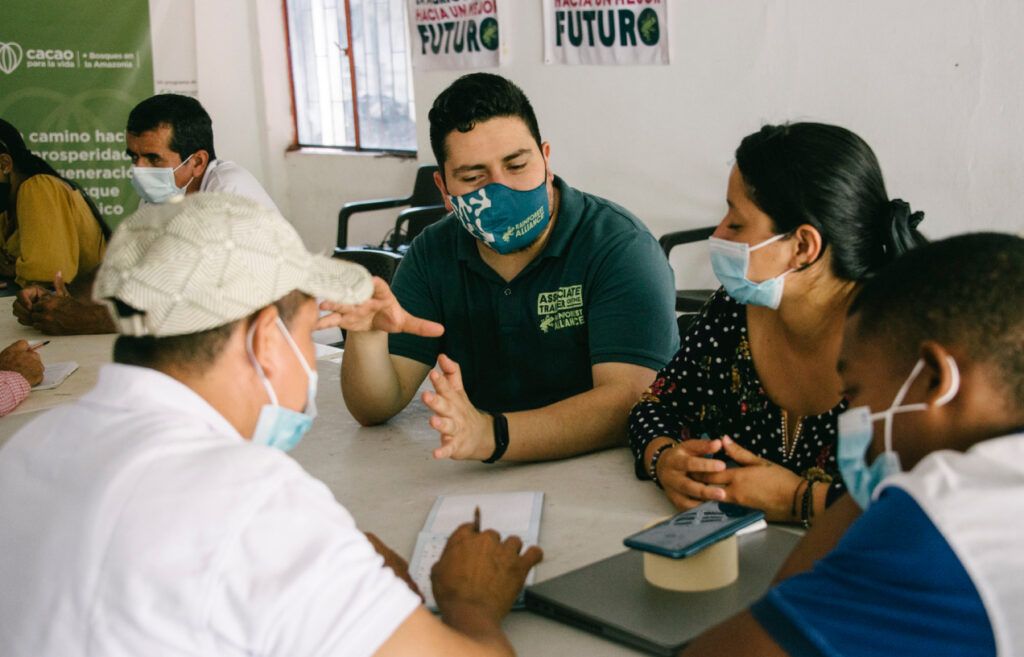
Discover our certification highlights from 2022:
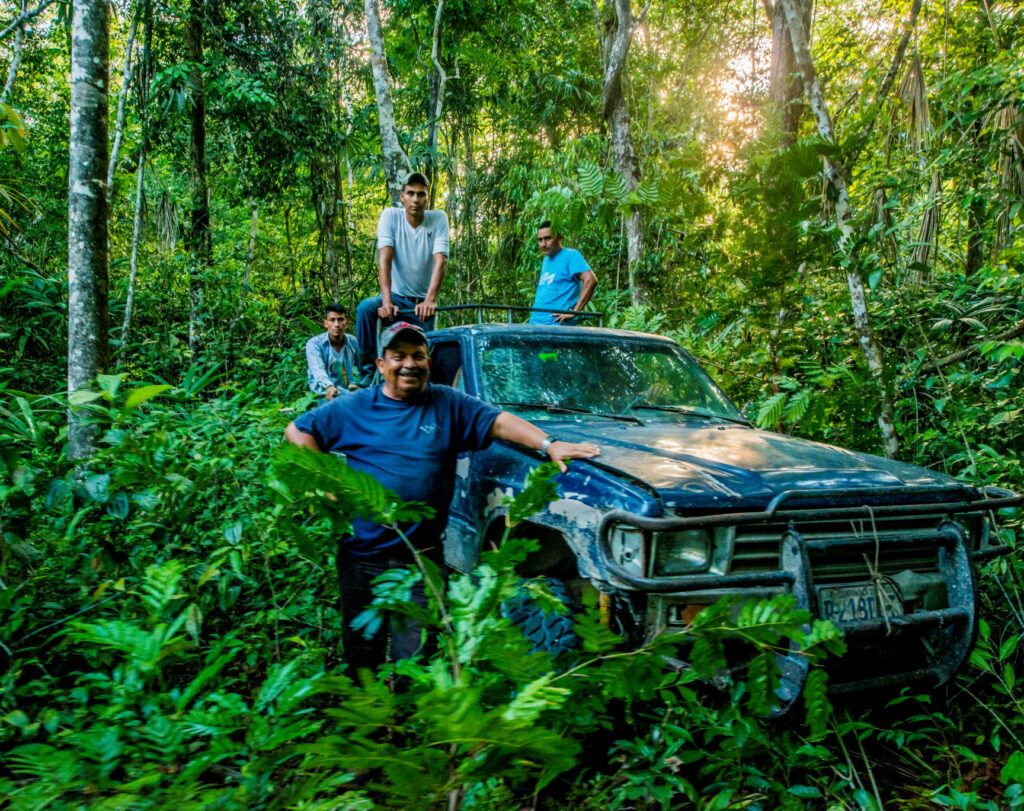
3.
Landscapes & Communities
We’re driving sustainability transformation across vast landscapes. In partnership with all land users, we tackle complex and interconnected challenges that are too big to take on alone—from climate change and deforestation to human rights and rural poverty.
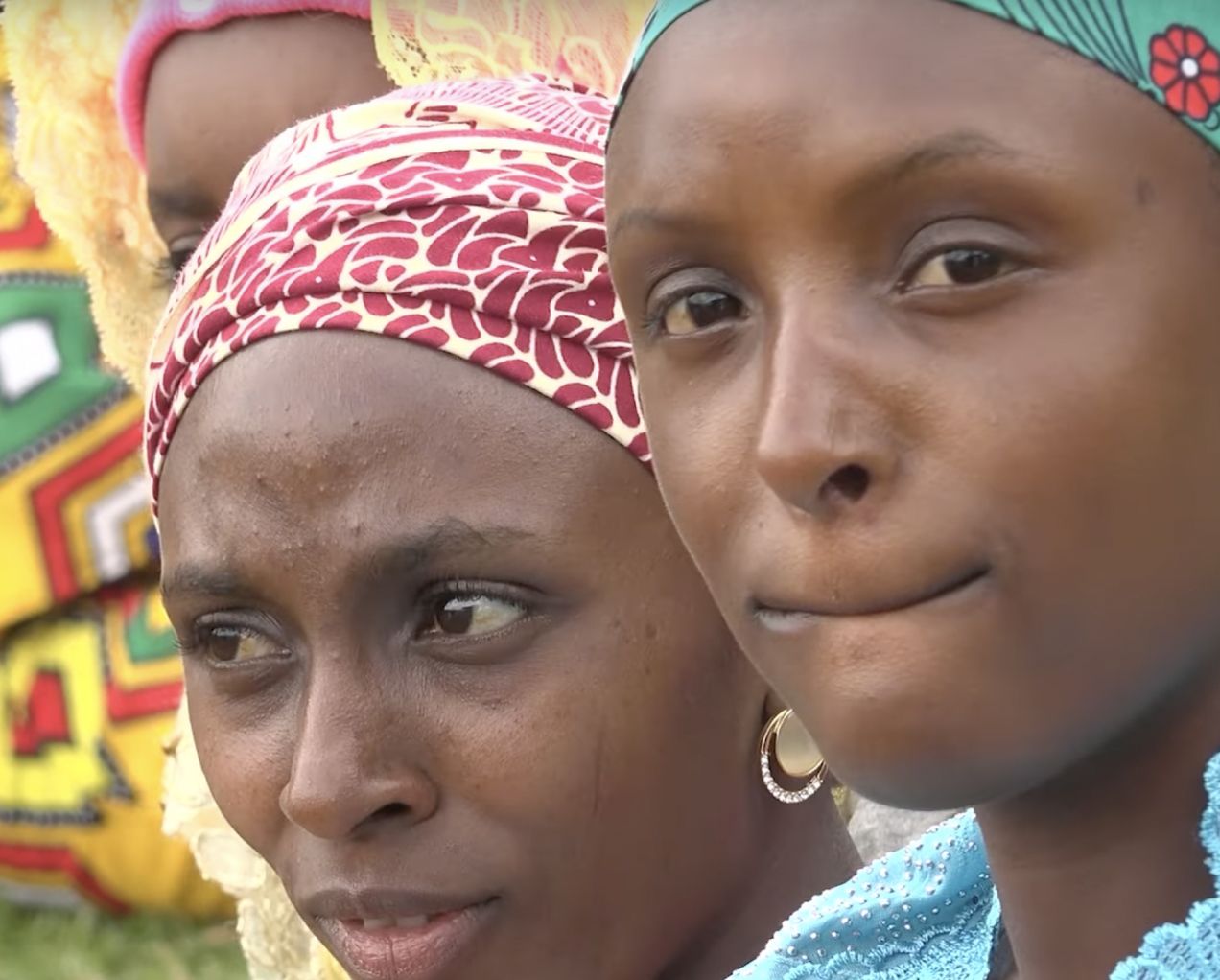
VIDEO: Advancing Women’s Rights in Cameroon’s Western Highlands
“It’s absolutely necessary that women are involved in landscape management. While men will always talk about productivity, women will be thinking about the variety of crops to grow, water access, and so on… all the things that help them bring food to the table.”
Nadège Nzoyem
Rainforest Alliance Senior Director, West and Central Africa
Uplifting Women to Help Landscapes Thrive in Cameroon
When women lead, it benefits families, communities, and entire landscapes. In two of Cameroon’s most important biodiversity hotspots—the Western Highlands and Dja Reserve—the Rainforest Alliance is working to strengthen community-led landscape management and promote women as sustainability champions. Our goals include helping these communities establish landscape management boards (LMBs) with at least 30 percent women’s participation, and boosting women-led local enterprises.
Our Cameroon team has worked hard to address the everyday hurdles that local women face and to open up new opportunities for leadership roles. We created workshop spaces that are child- and infant-friendly, engaged directly with traditional authorities and participants’ husbands and family members to ensure they embrace the women’s efforts, and more.
In 2022, we reached some major milestones. The community-run LMBs are fully functioning across nine municipalities with an average of 32 percent women’s participation—a number that’s already higher than our original target. Additionally, five women-led businesses (selling agricultural and forest products) are receiving regular support for improved business management.
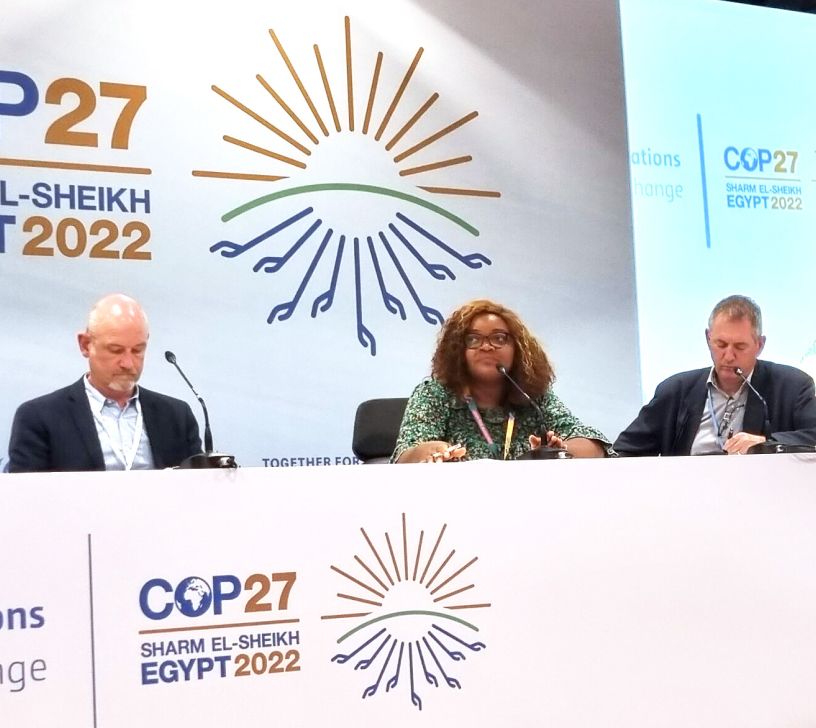
COP27 Side Event: Land Restoration Protects People and Nature
During COP27, Nadège Nzoyem, our senior director for West and Central Africa, joined a panel of climate leaders to discuss how expanding proven land restoration techniques can help us achieve our climate goals. She shared learnings from our work in Cameroon to show the importance of a multi-stakeholder approach to landscape management, emphasizing the need for long-term financial support.
This event was put on by the Rainforest Alliance and Landscape Finance Lab (partners of 1,000 Landscapes for 1 Billion People) along with World Vision Australia and the Ikea Foundation. Nzoyem also shared our work in Cameroon at two additional events organized by the Rainforest Alliance.
What is “Integrated Landscape Management” (ILM)?
Through our ILM approach, the Rainforest Alliance works with rural communities to build dynamic landscape partnerships that unite all land users: farmers, forest enterprises, local leaders, companies, and governments.
Together, we tackle complex and interconnected challenges that are too big to take on alone—from climate change and deforestation to human rights and rural poverty.
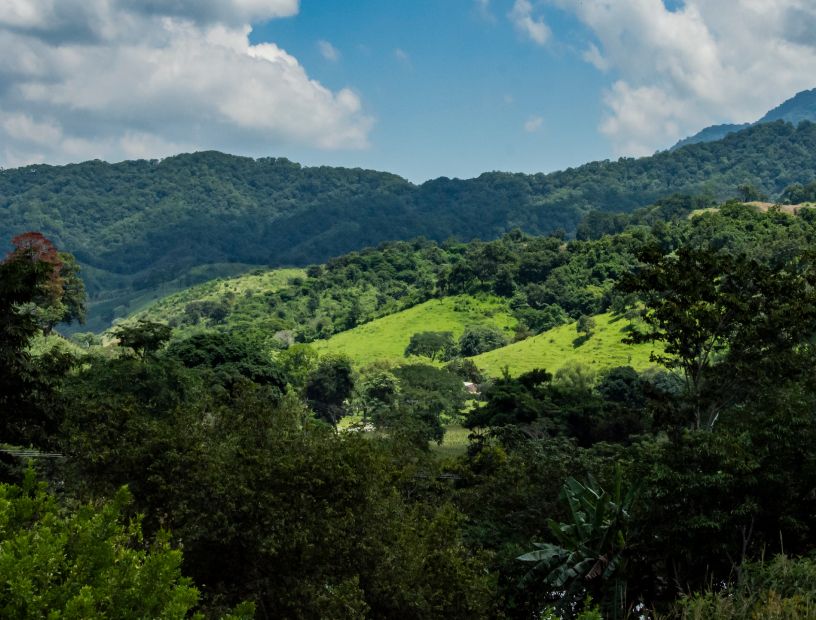
Explore some of our landscape projects around the globe:
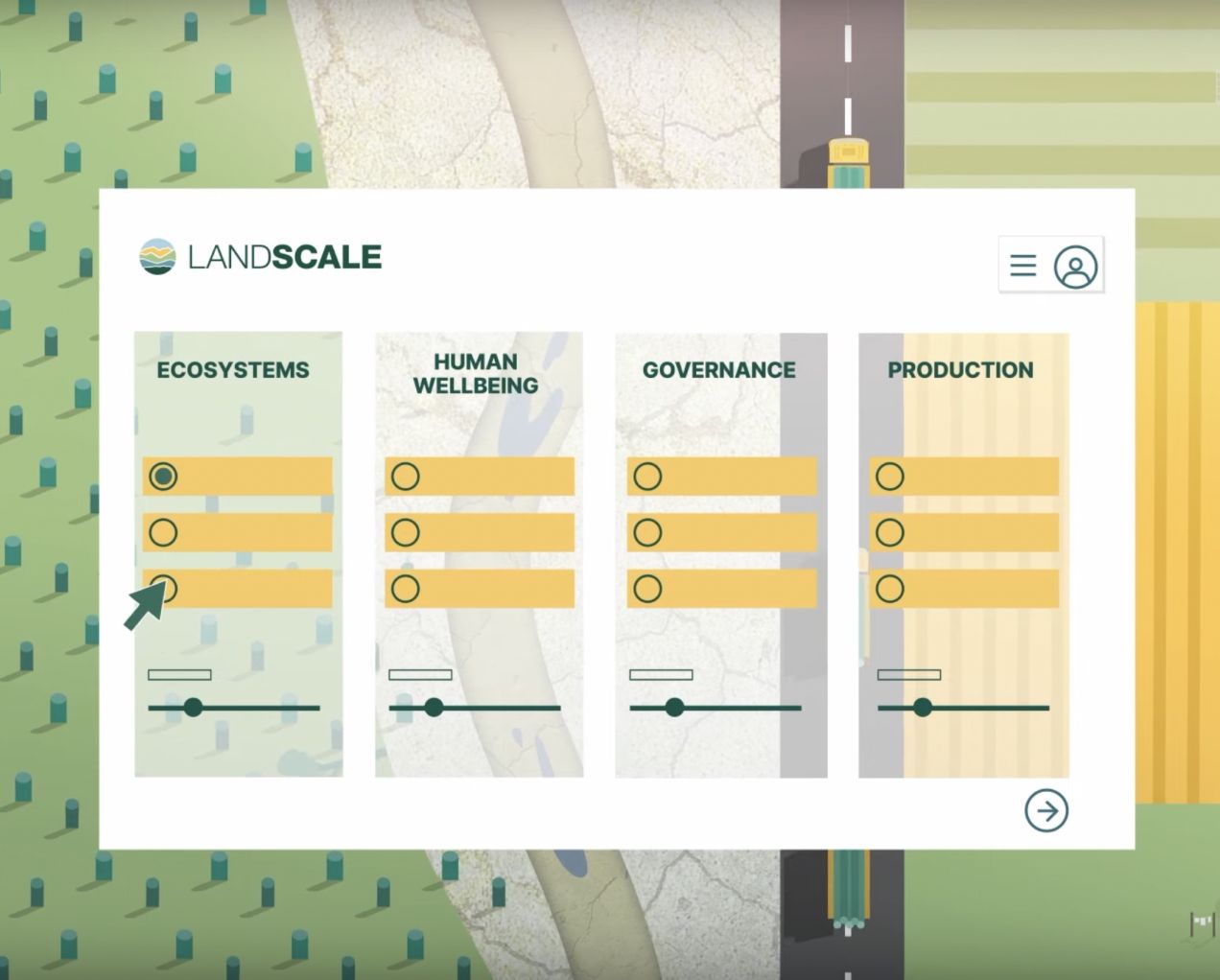
VIDEO: Introducing LandScale
Launching the LandScale Platform
LandScale is a game-changing, all-in-one tool that allows users to assess social and environmental risks (such as deforestation or land conflict) and invest in, monitor, measure, and communicate their sustainability impacts at the landscape level. After a three-year pilot phase, LandScale officially launched its online platform in April 2022.
In 2022, LandScale assessments covered:
-
24%
more land area since 2021
-
26
landscapes
-
17
countries
-
21 million+
hectares
Harnessing a Global Village to Tackle Child Labor
The world has seen a post-COVID spike in child labor cases, but as the experiences of our “global village” show, we can make huge strides to change the course. By bringing together parents, teachers, farmers, governments, NGOs, businesses, and millions of individuals, we aim to ensure that all children grow up in dignity.
We believe the best way to eliminate child labor is to tackle its root causes, which range from rural poverty and weak law enforcement to traditional gender norms and a lack of access to quality education.
“Ensuring all children return to school and stay in school requires urgent investments in education, social security, and poverty reduction.”
Kunera Moore
Rainforest Alliance Director of Themes
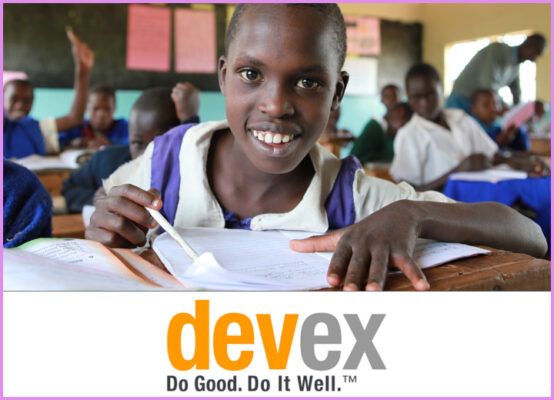
In the Media
We can and must stop child labor. According to Kunera Moore, this requires long-term collaboration and a context-specific approach that tackles the root causes.
Discover how we’re working to stop child labor:
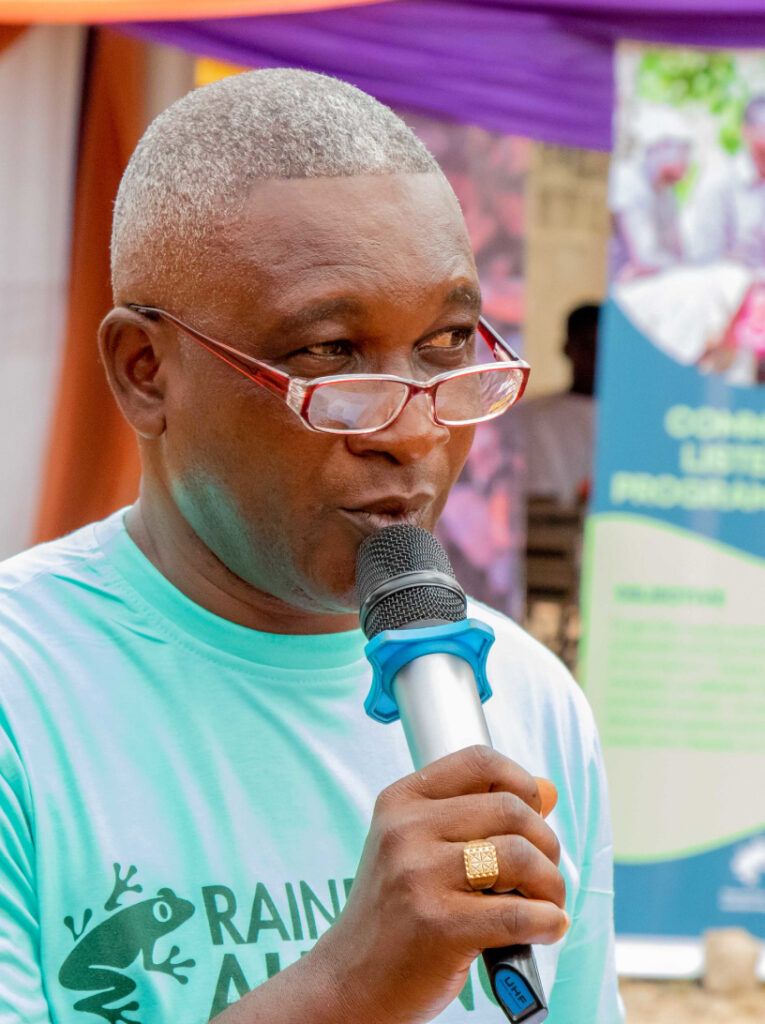
Putting Farmers at the Heart of Our Work with the Community Listening Program
The Rainforest Alliance believes that listening closely to farmers, community members, and other local stakeholders can help us tailor our programs to better address their most urgent needs. In 2022, the Community Listening Program was launched in Guatemala, Ghana, and Mexico to develop and test a set of tools for gathering, synthesizing, and responding to stakeholder feedback.
Since then, we’ve conducted one-on-one interviews with over 300 farmers and other community members, learning about their experiences with Rainforest Alliance programs and projects and gathering suggestions for improvement. We learned, for example, that stakeholders view the training provided by the Rainforest Alliance as a major benefit of partnering with us and are especially interested in additional training on income diversification strategies.
“I nearly stopped cocoa farming because of how the trees were dying, but I was encouraged by the Rainforest Alliance’s visits and trainings.”
Salomey Arthur
Cocoa farmer, Ntakam, Ghana
Forest Allies: A Unique Partnership Between Local Communities and Companies
In all our landscape work, we center the voices of those who call these places home. When it comes to addressing the climate crisis and combating forest degradation and deforestation, forest communities have invaluable firsthand knowledge to share with those who want to develop and invest in effective solutions.
That’s where Forest Allies comes in: We’re forging a powerful alliance between companies, local communities, regional and international organizations, governments, and other stakeholders to support forest communities to solve the complex problems they face. Forest Allies is an opportunity for holistic collaboration and, for companies, impactful investment in the regions they source from and beyond.
Our company partners help us finance this work; their initial investments helped us secure an additional US$2.4 million in donor funding.
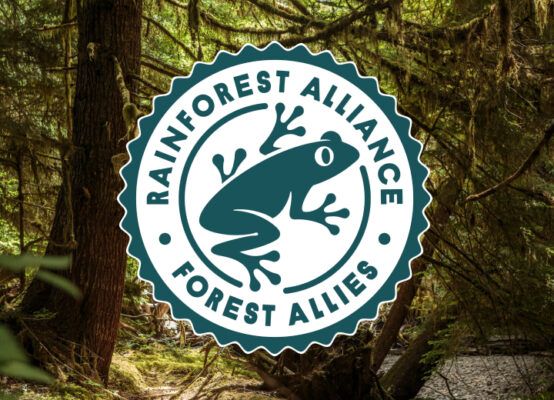
Forest Allies
How Our ‘Forest Allies’ Work Together to Support Thriving Rural Communities.
Our Forest Allies projects span:
-
5
countries
-
40
communities
-
5,300
livelihoods benefitted
-
200,000
hectares under community management
-
3 million+
hectares protected in preserved areas
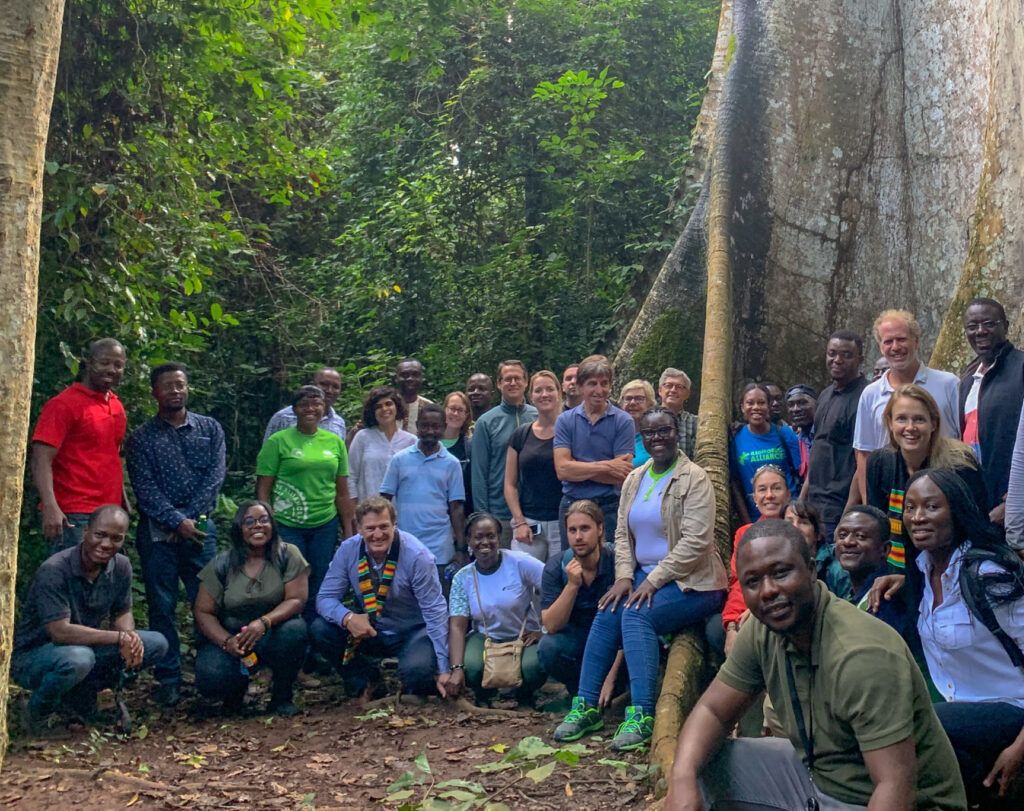
4.
Our New Strategy
During this critical decade, join us in accelerating the speed and scale of impact.
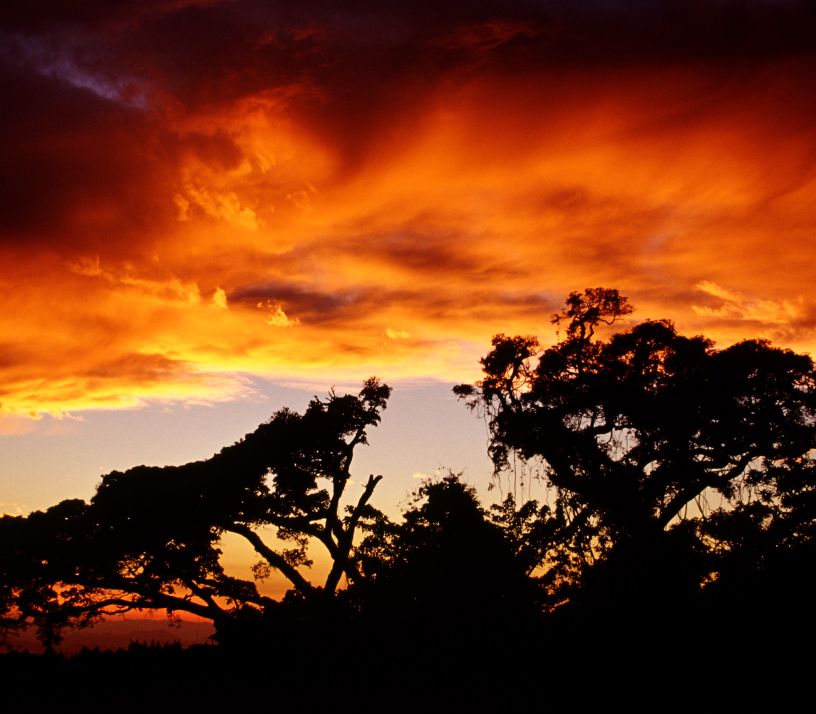
A Critical Decade
Connected crises threaten our future—from the climate emergency and spiraling biodiversity loss to chronic rural poverty and human rights challenges. 2030 is commonly cited by experts as a potential “point of no return”—making this a critical decade for humanity.
The hard truth is that the old sustainability models are good, but not good enough. They’re too fragmented, too small, too slow—and we all know it.
But on the flip side, we’ve learned a huge amount about what works and what doesn’t.
Our 2030 Vision
We need a systemic approach—a transformative global alliance that puts rural communities at the heart of the solution. Only together can we accelerate change at the speed and scale the world needs.
The three pillars of this approach are:
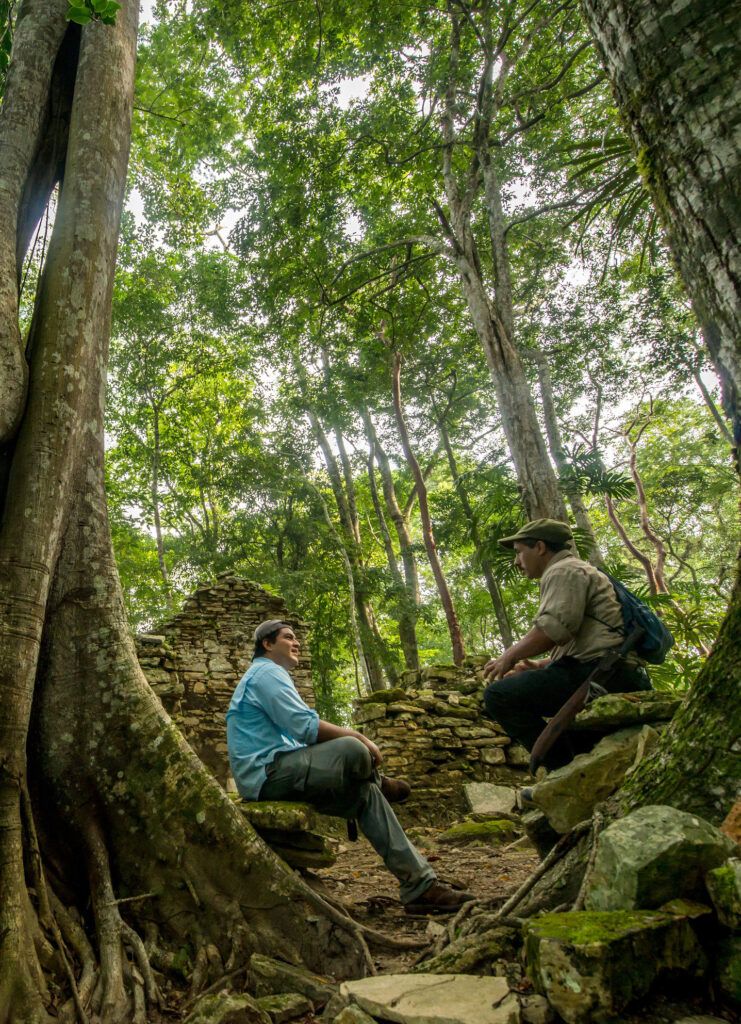
We’re All In
From the iconic Selva Maya to the fertile slopes of Mount Kenya and beyond, we’re inviting farmers and forest communities all over the world to join the global transition toward regenerative agriculture and forest restoration. And we’re calling on companies, institutions, governments, and individuals worldwide to stand with us and help scale impact across critically important landscapes.
Let’s create a world where people and nature thrive in harmony together.
“By 2030, our regeneration movement hopes to reach 100 million people in farming and forest communities. This is 20 percent of all producers working in tropical forest areas—a tipping point for system change.”
Santiago Gowland
Rainforest Alliance CEO
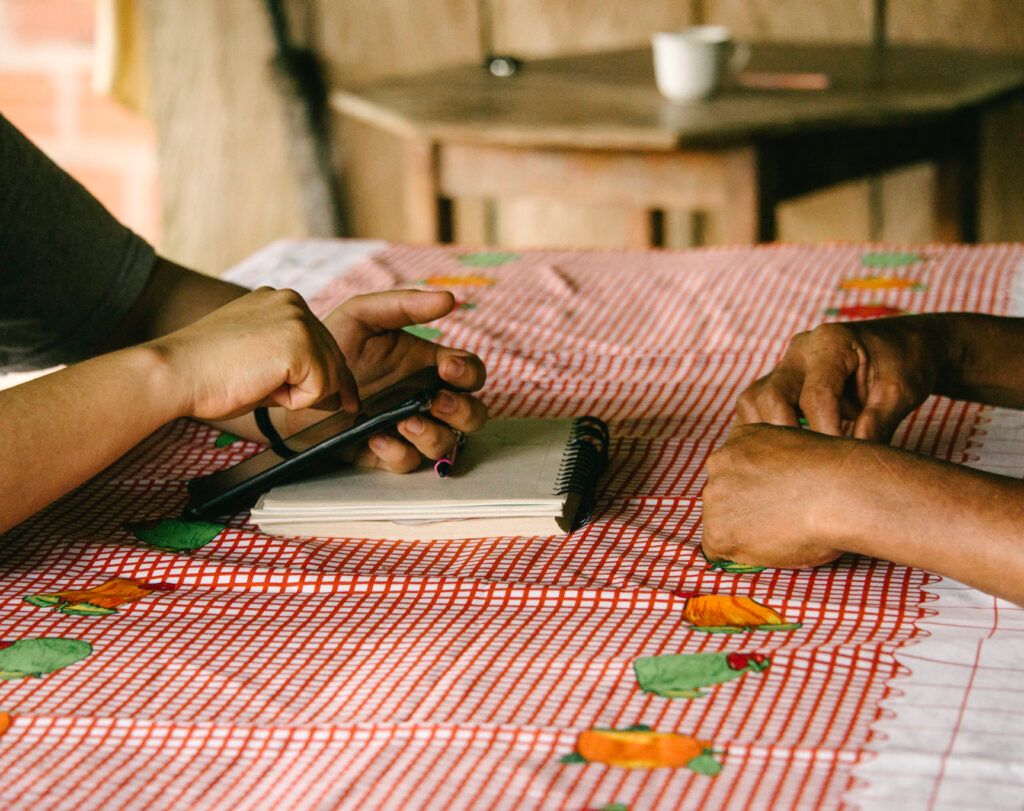
5.
Finances & Funding
Our work and sustainability programs are financed by diverse sources of income—from certification royalties to grants from governments and foundations, and individual donations.
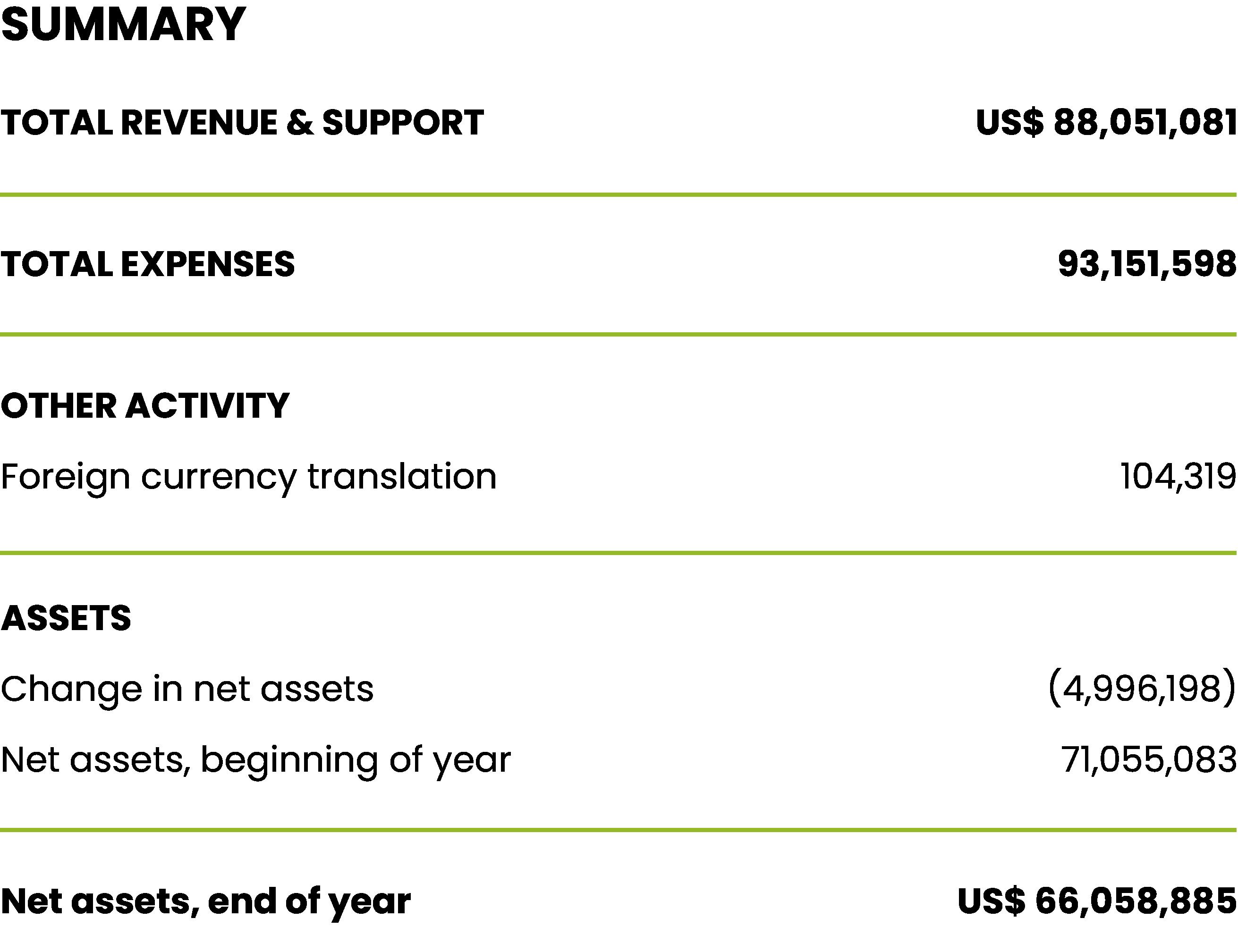
Rainforest Alliance Holding, Inc. is an international non-profit organization, organized on January 1, 2018 in the State of Delaware to serve as the common parent non-profit corporation providing centralized governance and oversight over Rainforest Alliance, Inc. and Stichting Rainforest Alliance. The above financial summary represents the consolidated revenue and expense for 2022 for the merged organization.
Sources of Income
How is the Rainforest Alliance Funded?
Donors
We are deeply grateful to the thousands of individuals and organizations who make our work possible. Your “we’re all in” commitment to our shared mission helps us take action on some of the most pressing social and environmental challenges of today.
The donors who signed contracts with us in 2022 and contributed more than US$ 1,000 to support our work are listed below.
Acknowledgements
Board of Directors
Daniel R. Katz, Chair • Ton van der Laan, Vice Chair • Peter M. Schulte, Treasurer • Labeeb M. Abboud • Tasso Azevedo • Sonila Cook • Daniel J. Couvreur • Sarah-Jane Danchie • Wendy Gordon • Marilú Hernández de Bosoms • Nina Haase • Dan Houser • Peter H. Lehner • Nalin Miglani • Vanusia Nogueira • Juan Esteban Orduz • Anurag Priyadarshi • Anisha Rajapakse • Eric B. Rothenberg • Paul Rubacha • Kerri A. Smith • Annemieke Wijn
Ambassadors Circle
Members of the Ambassadors Circle are talented individuals from the business, scientific, philanthropic, and entertainment industries who actively support the Rainforest Alliance’s mission in unique ways.
Maxine Bedat • Gabriella Campagna • Count Amaury de Poret • Jamie Denburg Habie • Ricky Echanique • Jesse Glickstein • Carol Casazza Herman • Andrew Klaber • Lawrence F. Lunt • David Madden • Richmond Mayo-Smith • Laurie Medley • Alexis Rockman • David Scott Ross • Cameron Russell • Melanie Salmon • Bonnie Wright • Grace Yu
Editors
Daria Koreniushkina • Gui-Xi Young
Writers
Laura Jamison • Jenna Pacitto
Designers
Patrick Floyd • Mason Philips • Joost Voets
Video Production
Justin Valdes
Web Development
Matt Nerger • Erica Rosset
Project Management
Marta Fiolhais
Contributors
Gabriela Cordon • Alexandra Dawe • Larissa Diakanua • Nurul Wara Firda • Michael Gibbons • Marlene Höning • Alba Leon
Photographers
Joost Bastmeijer • Giuseppe Cipriani • Matt Ehnes • Matthew Harmer • Caroline Irby • Sergio Izquierdo • Suvashis Mullick • Nice and Serious • IGN Andre Stiana • Dan Stone • Michael Toolan • Kalyan Varma • Angela Vives • Charlie Watson

 Rainforest Alliance offices and staff locations
Rainforest Alliance offices and staff locations









